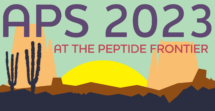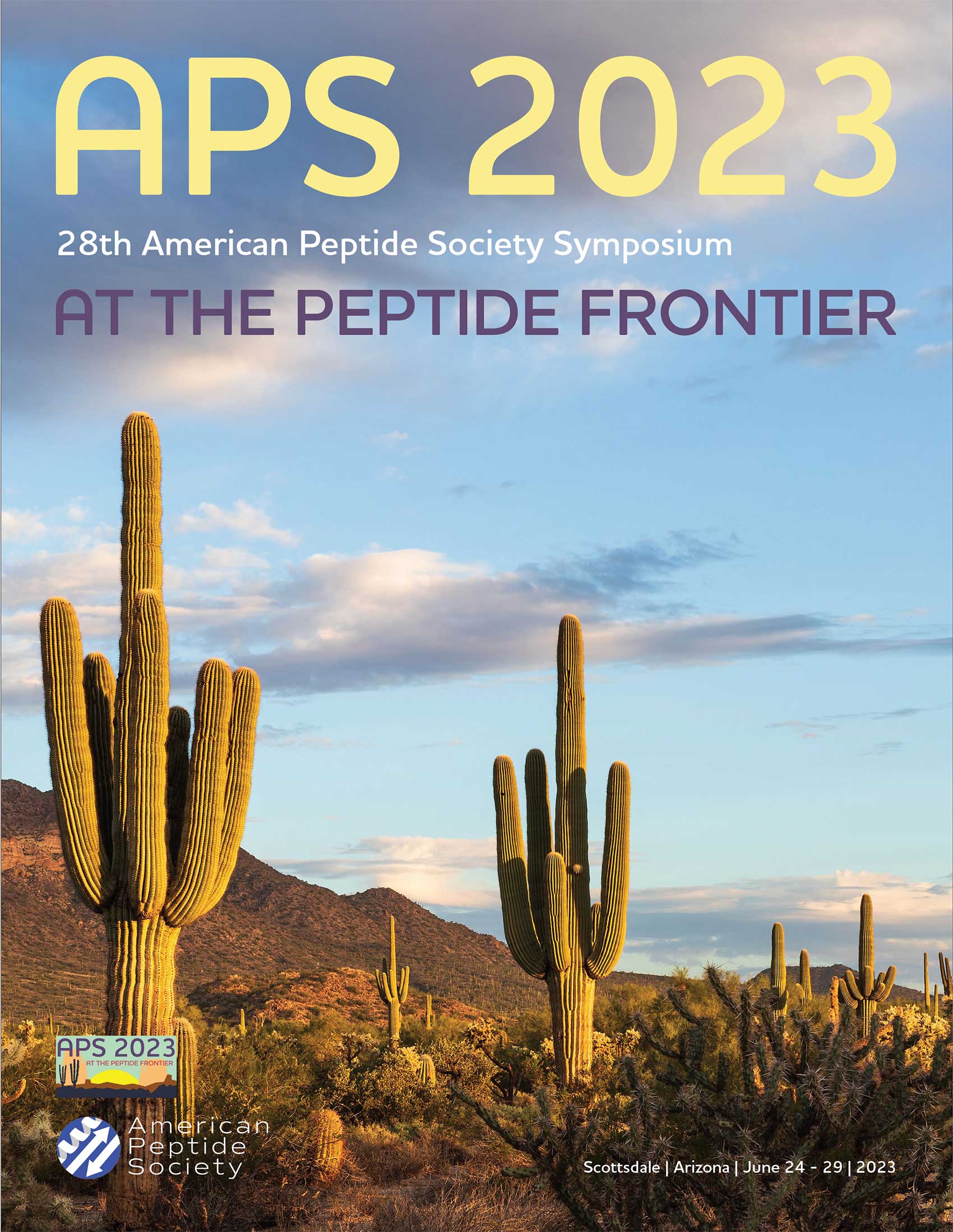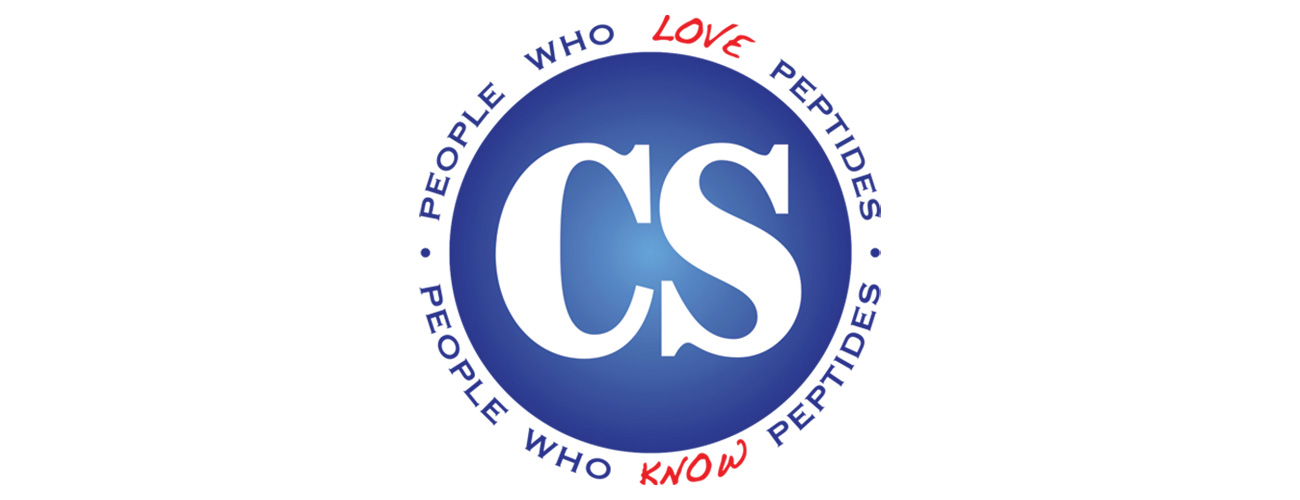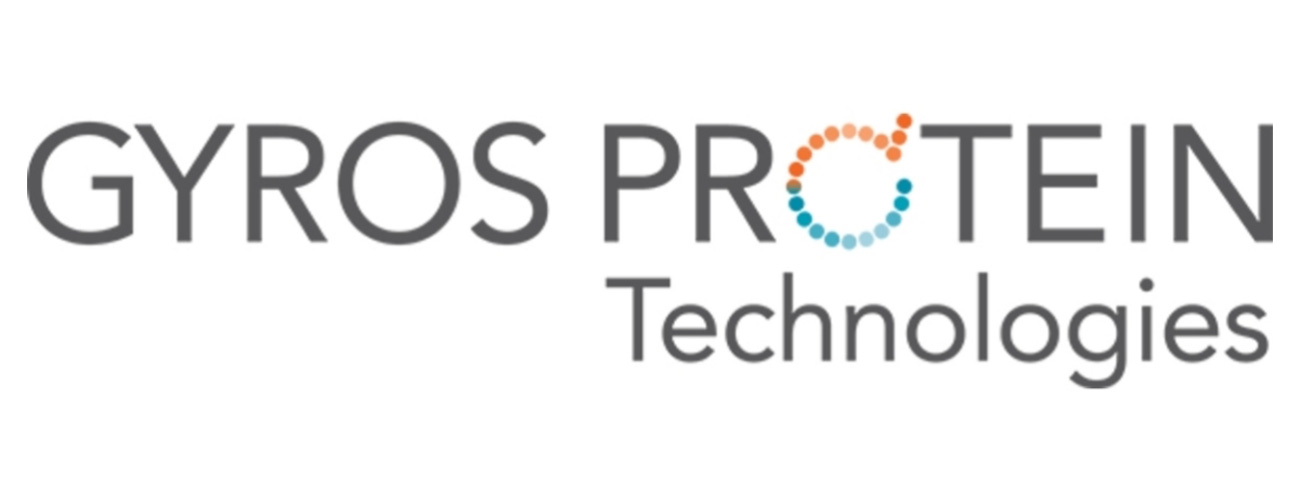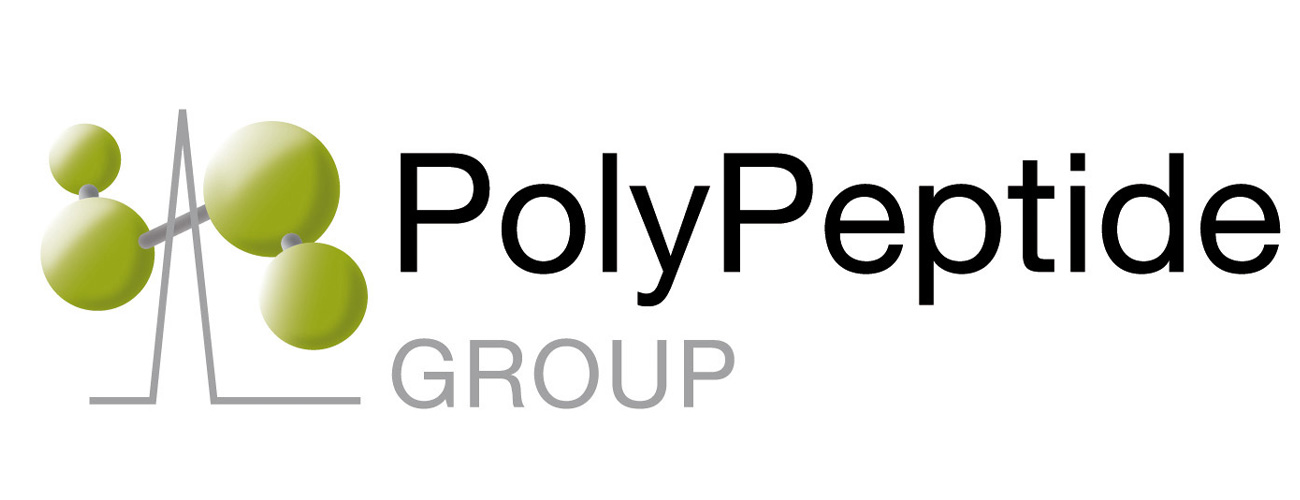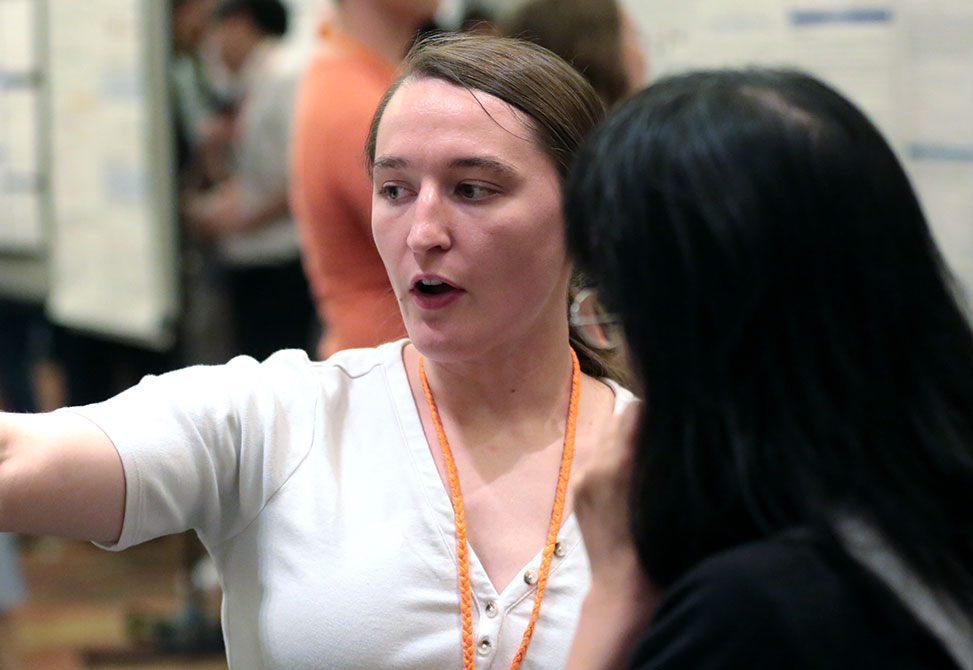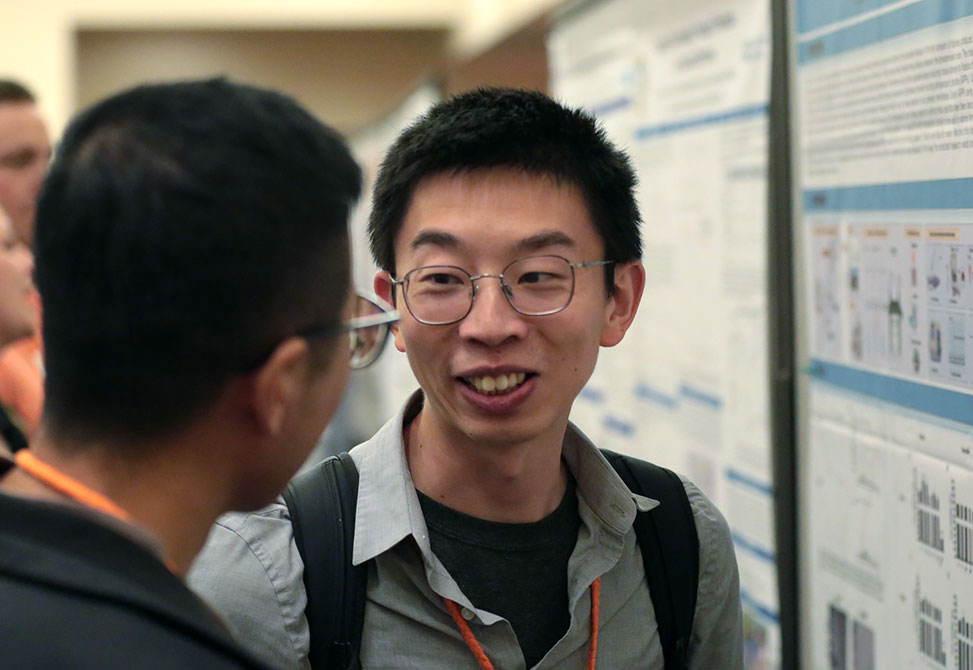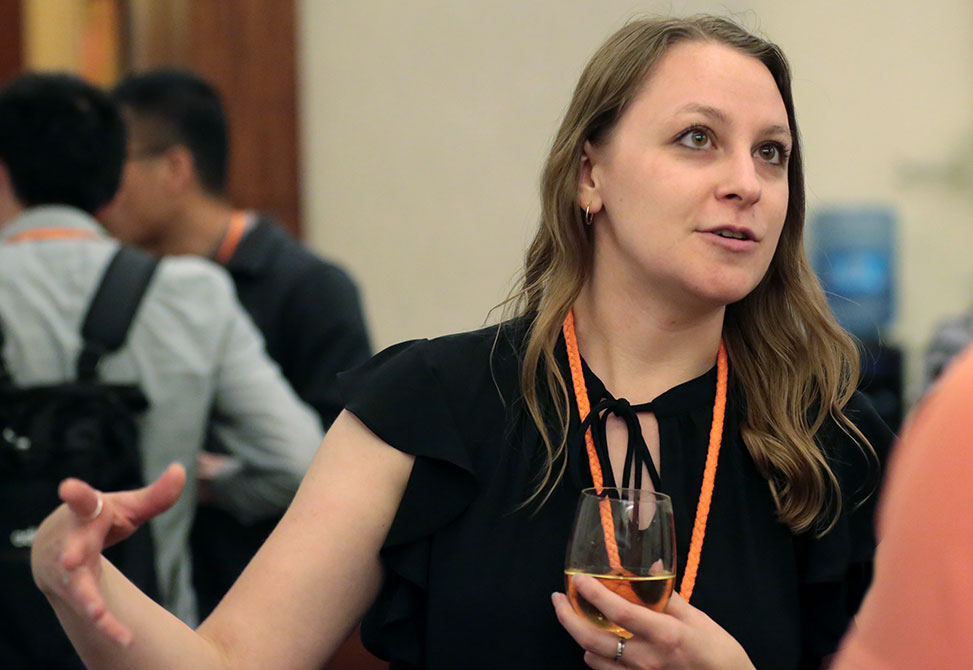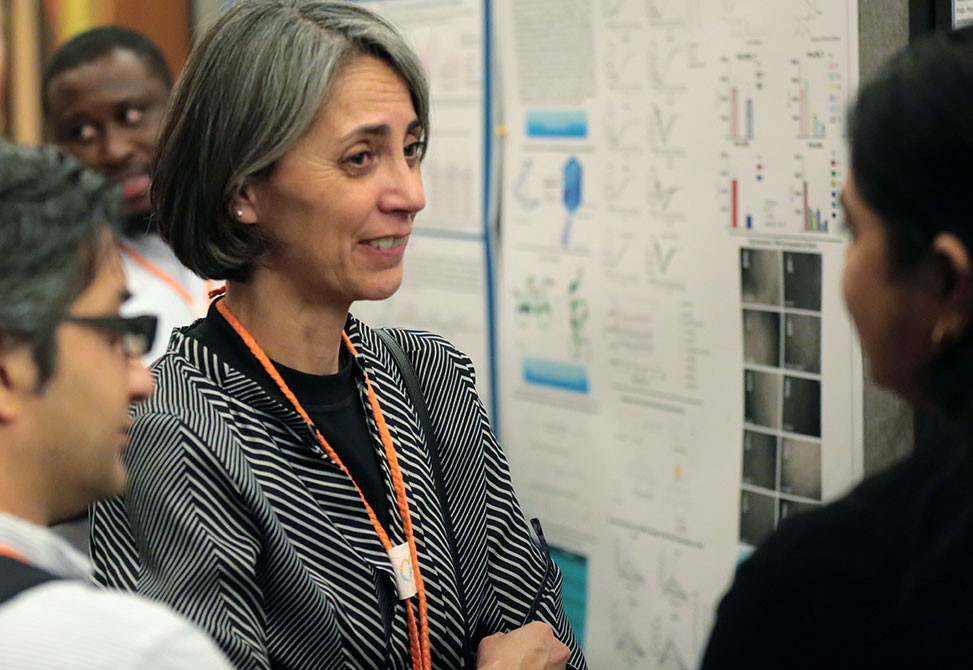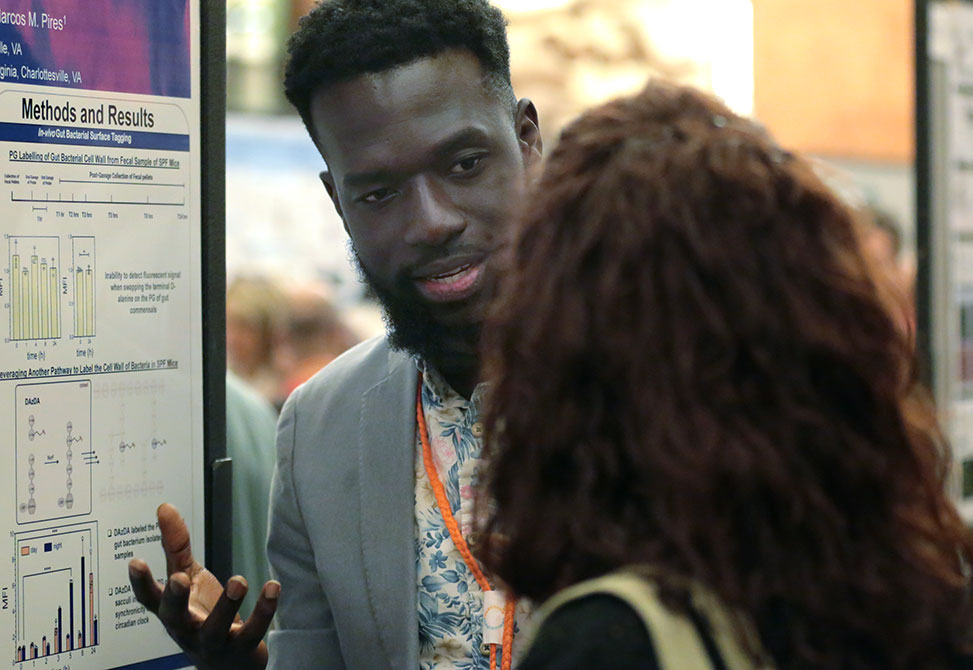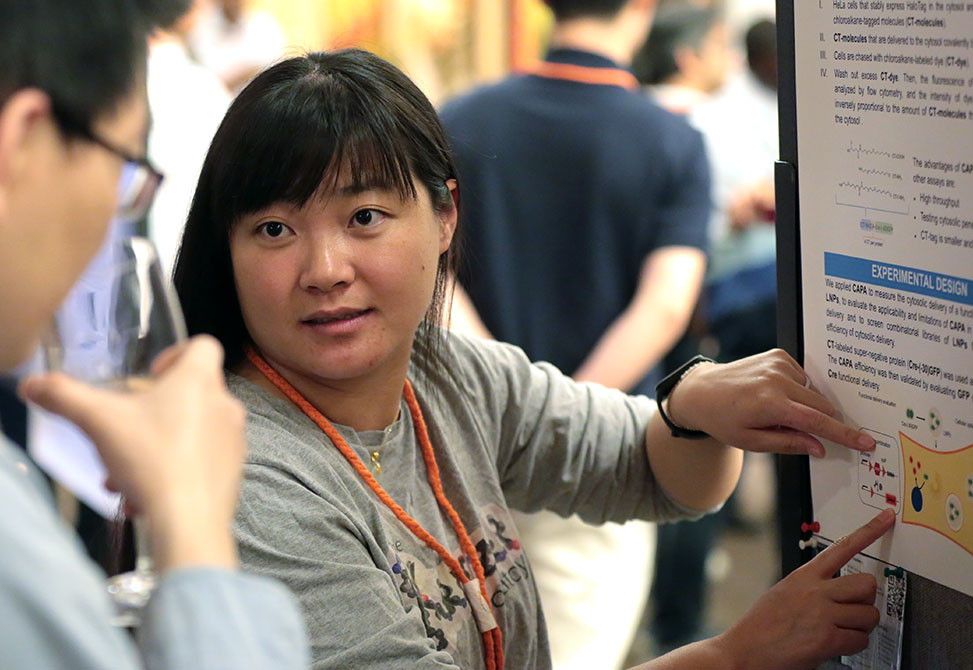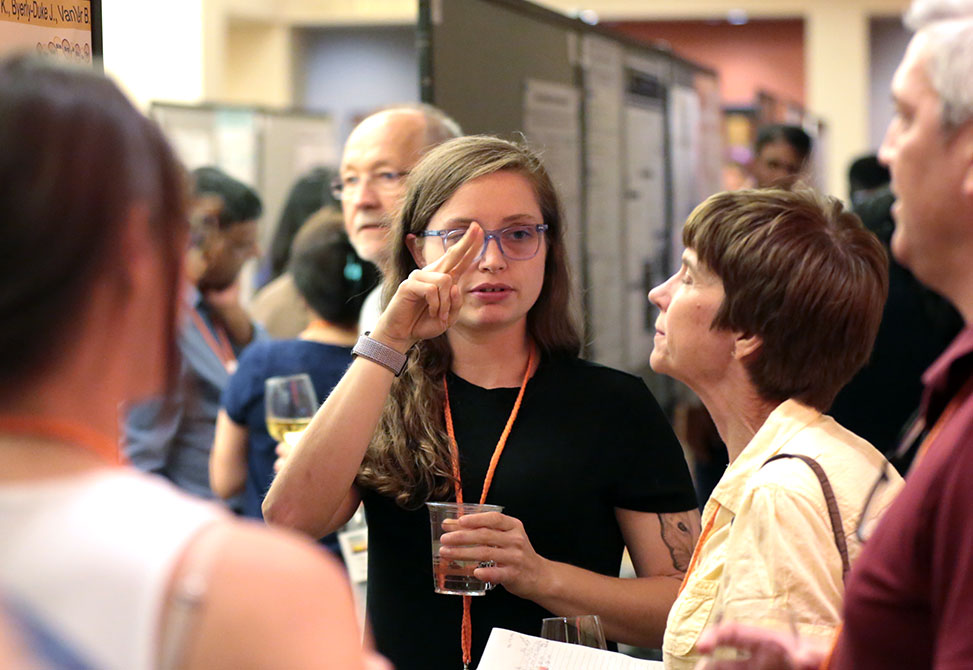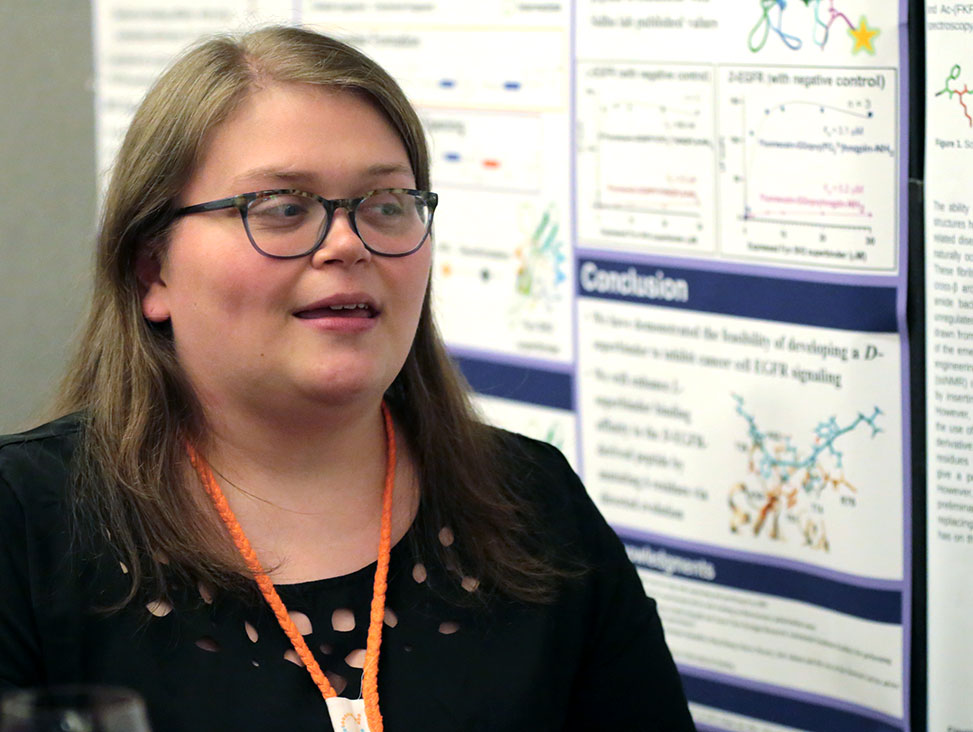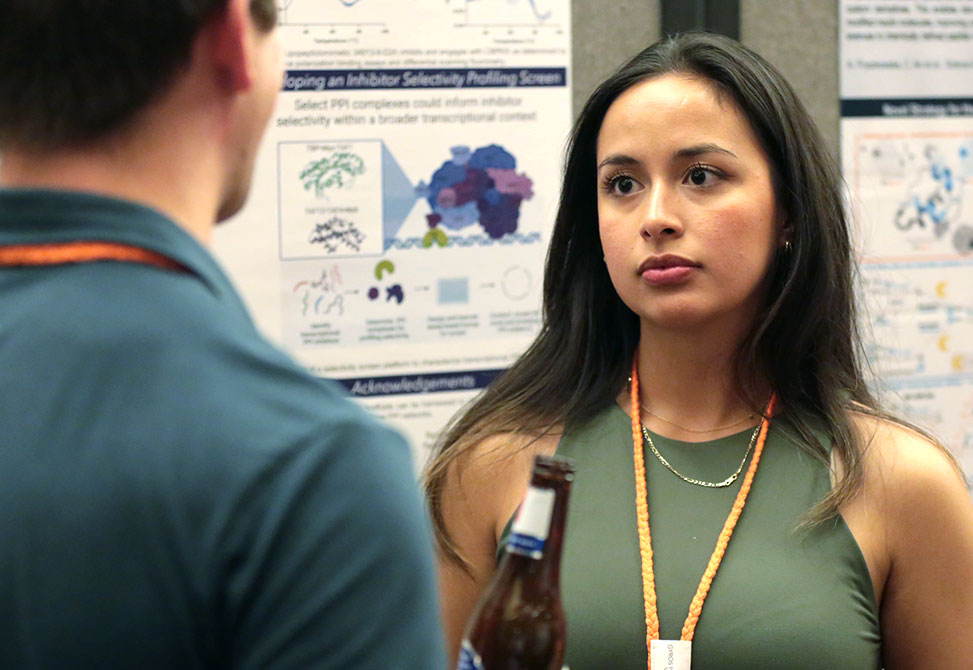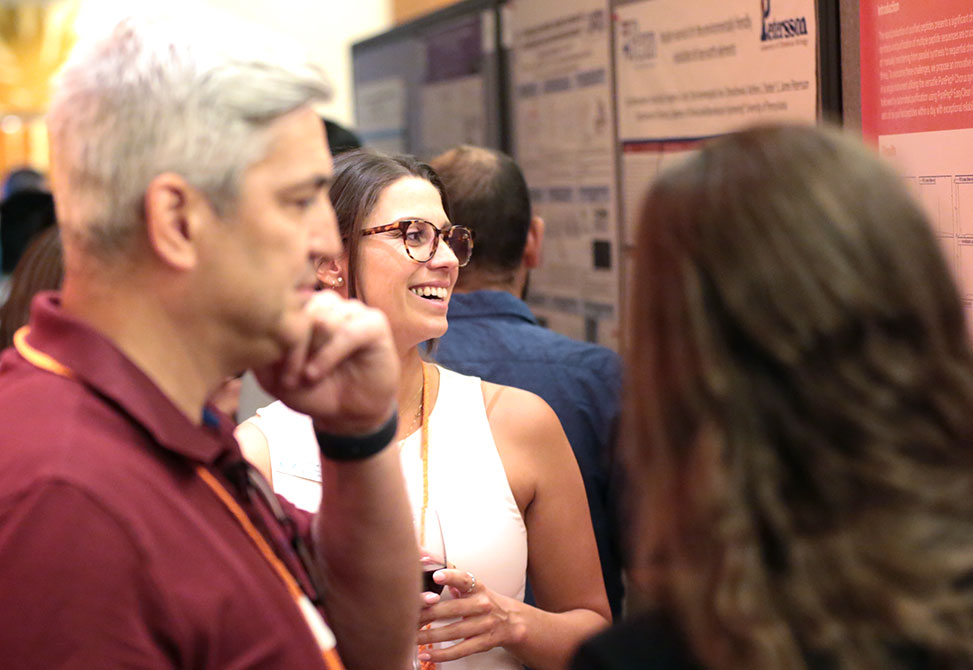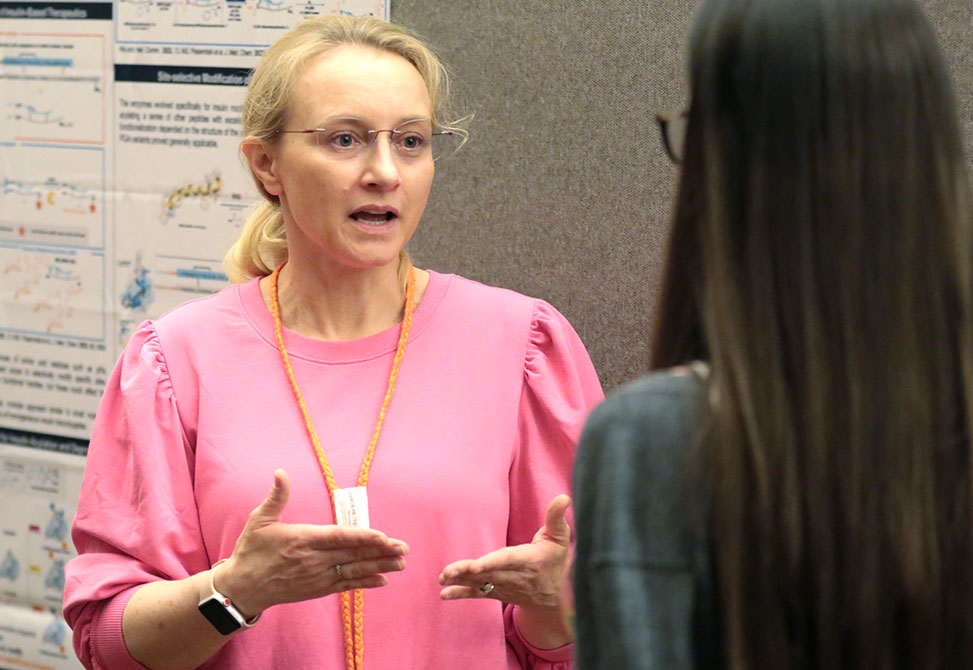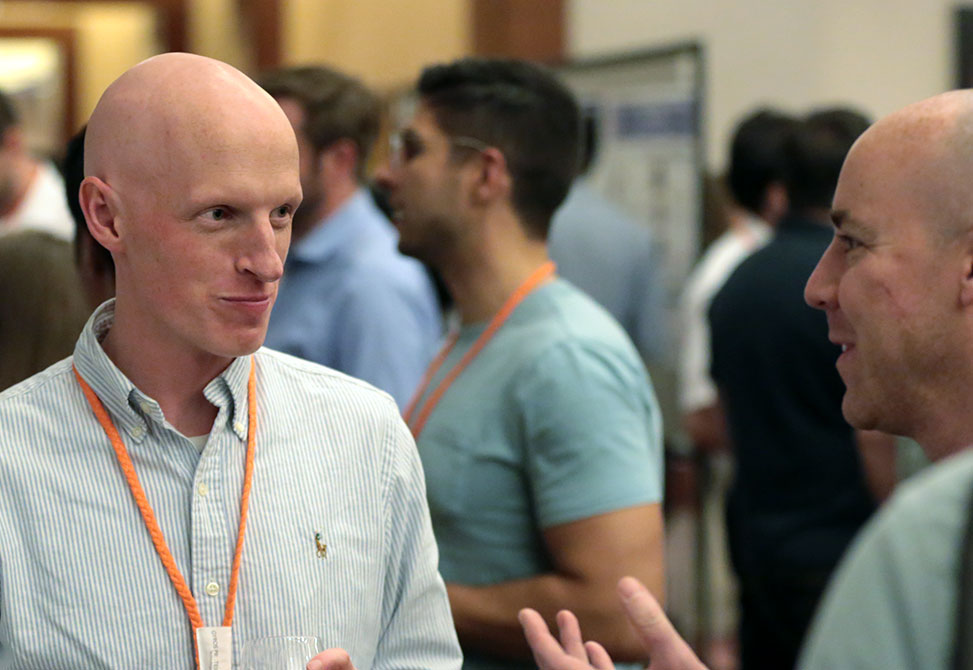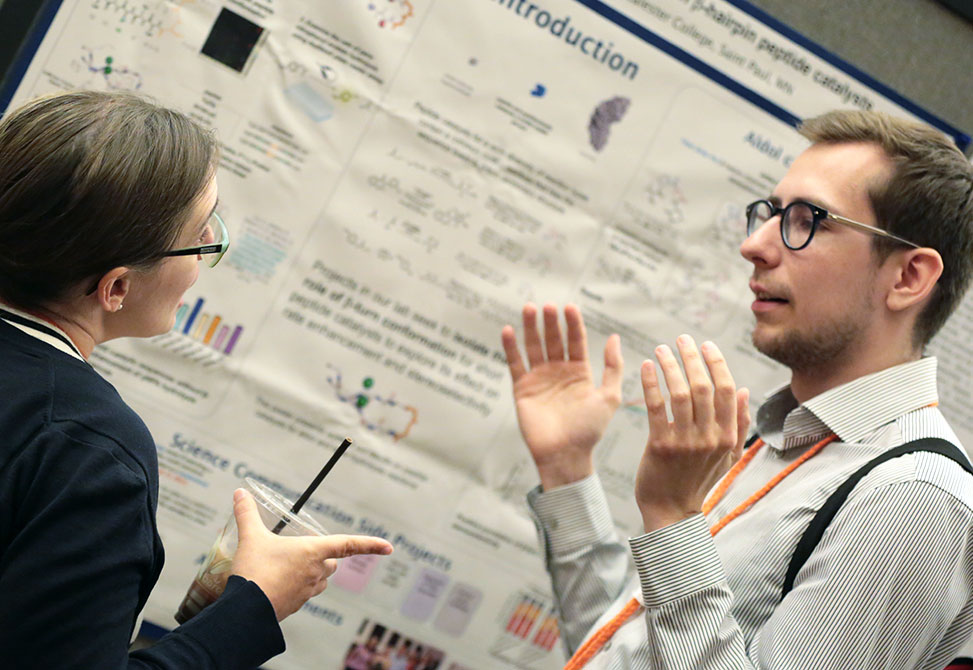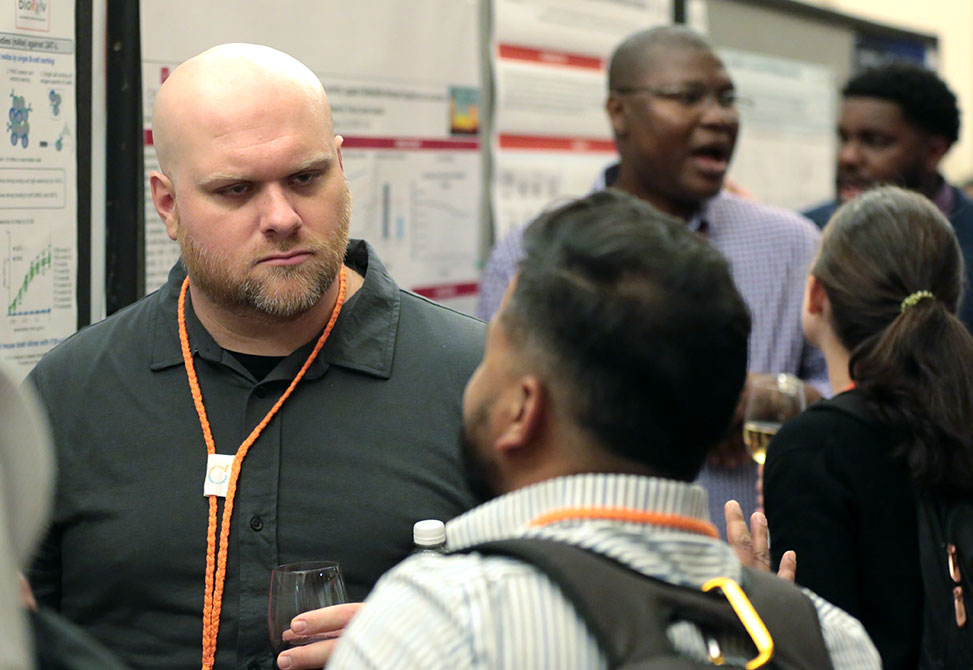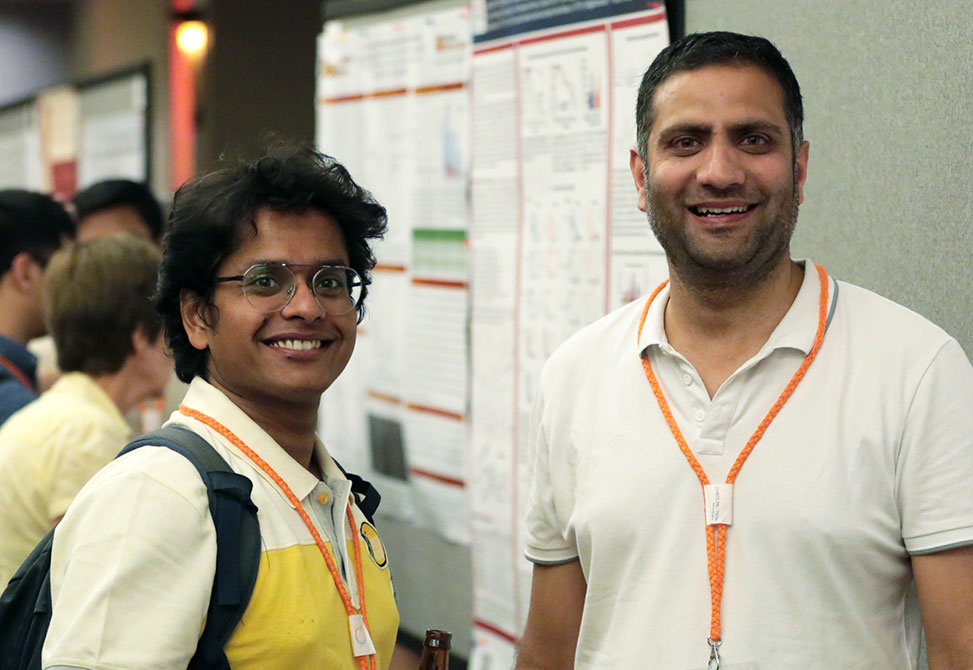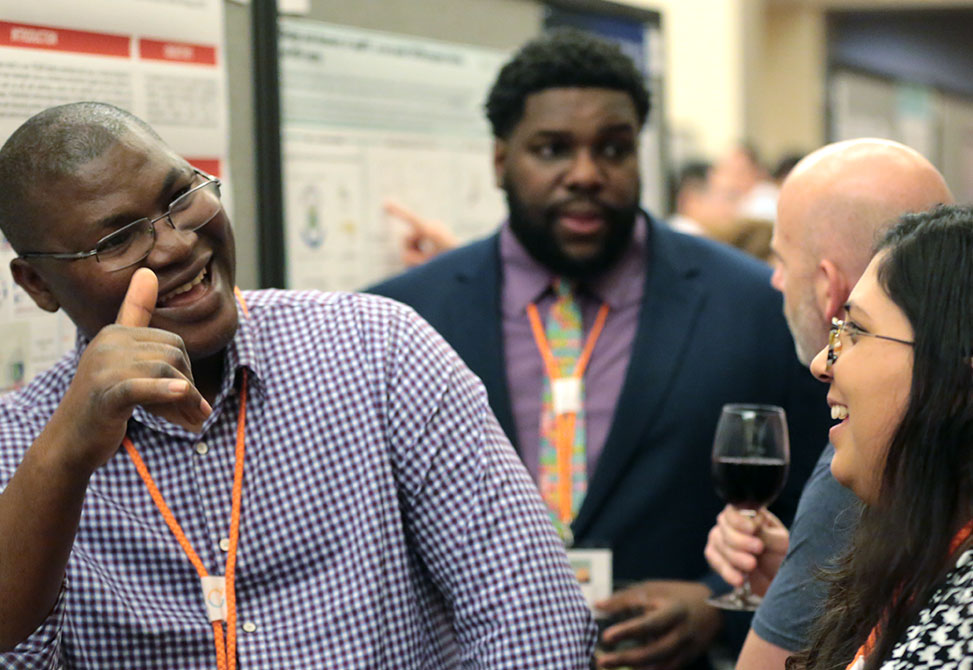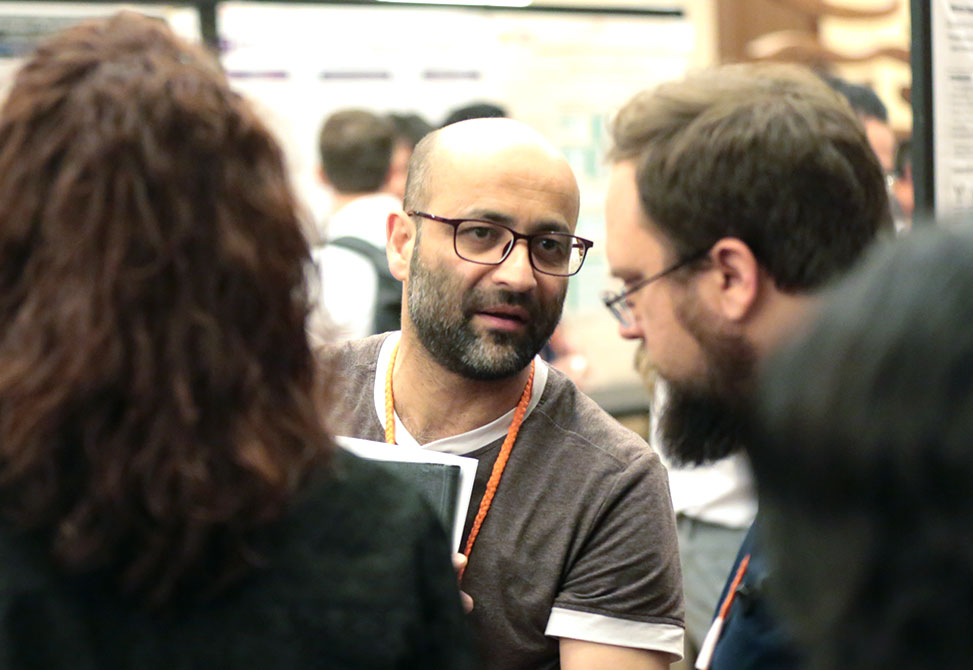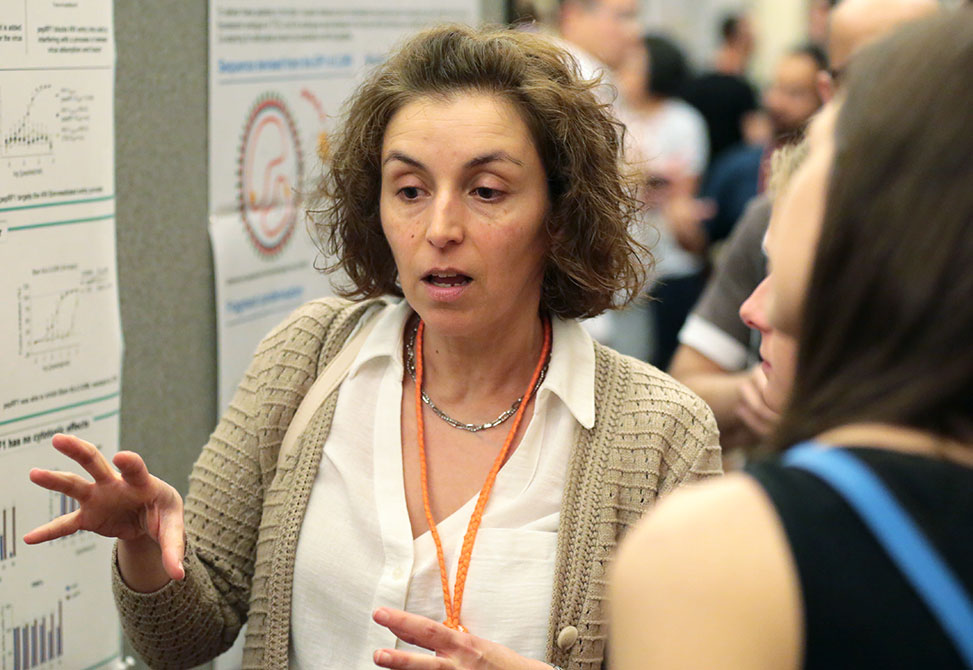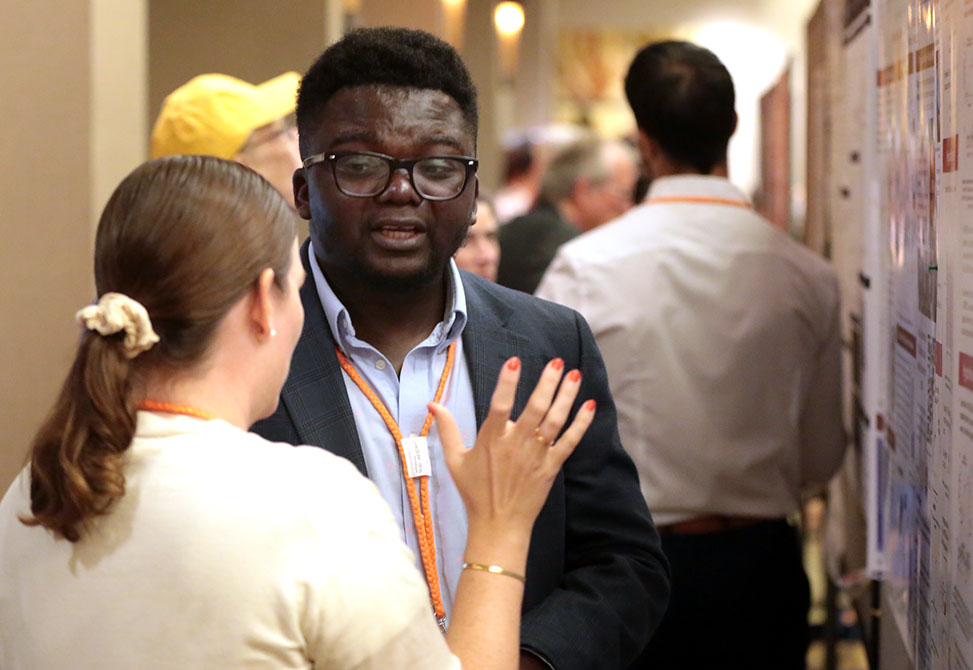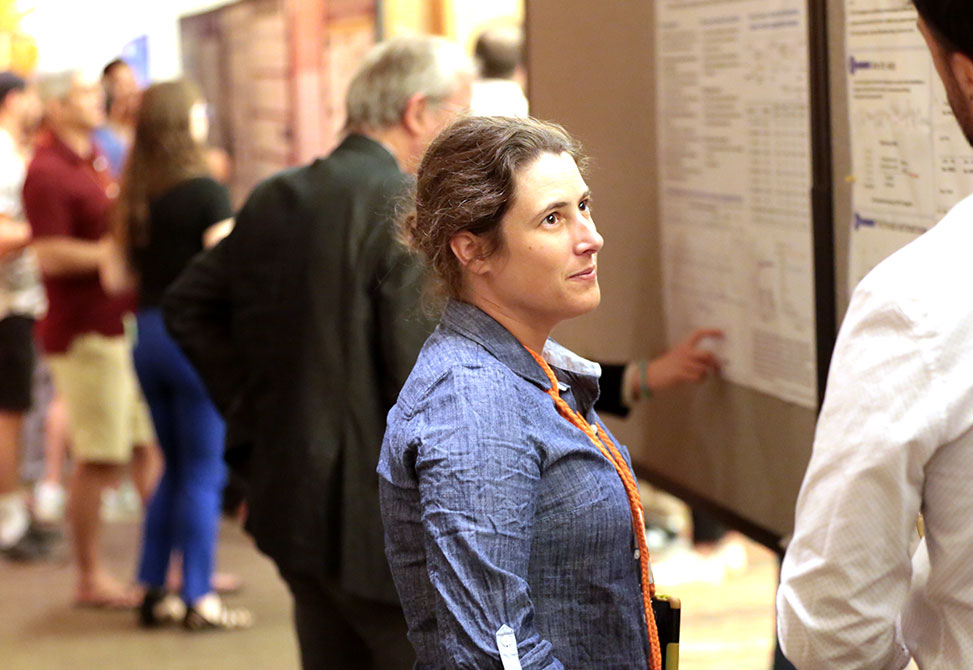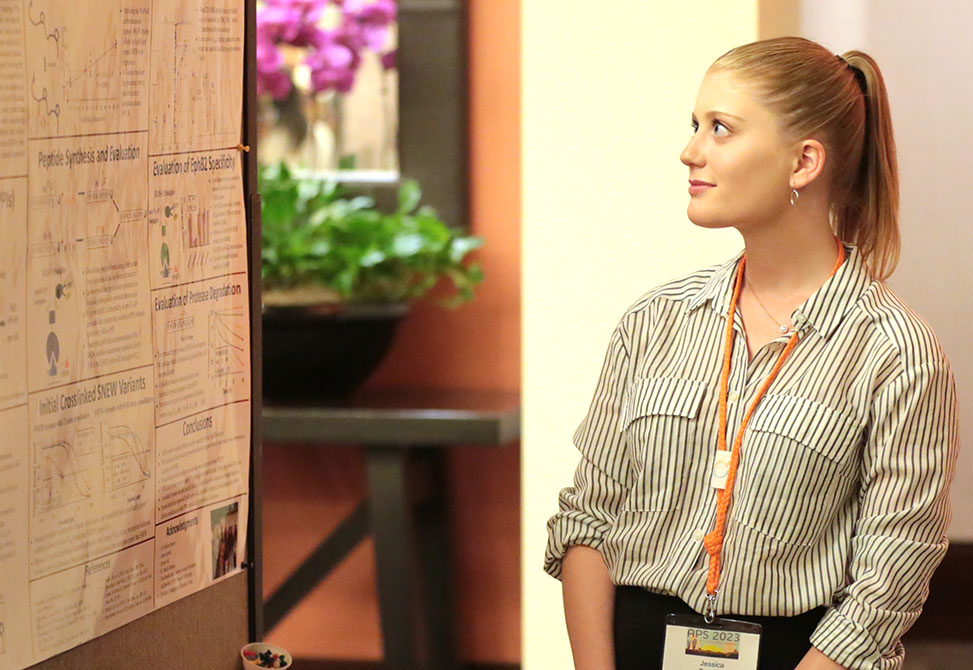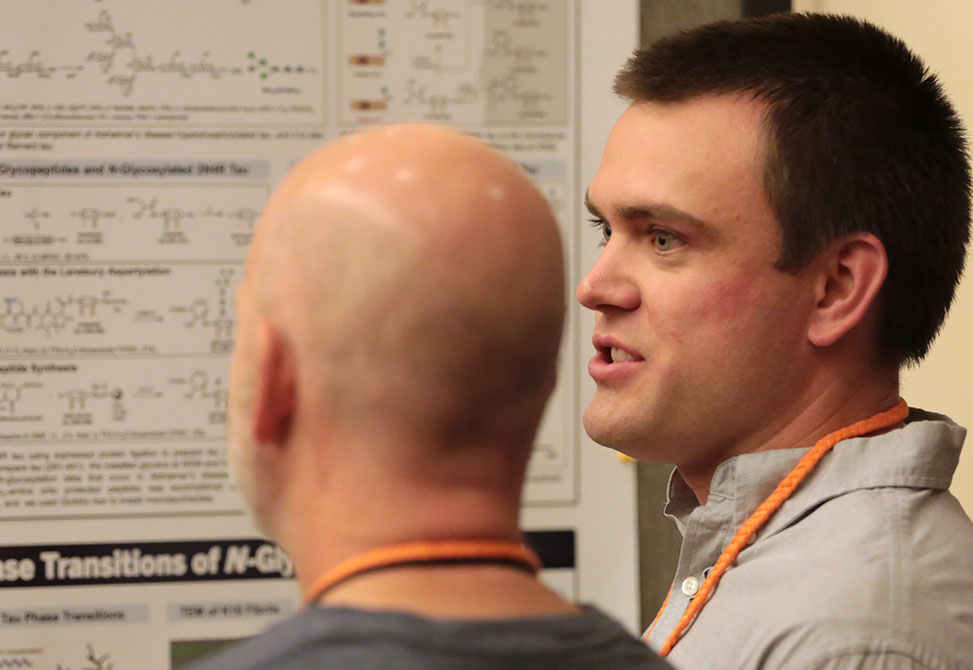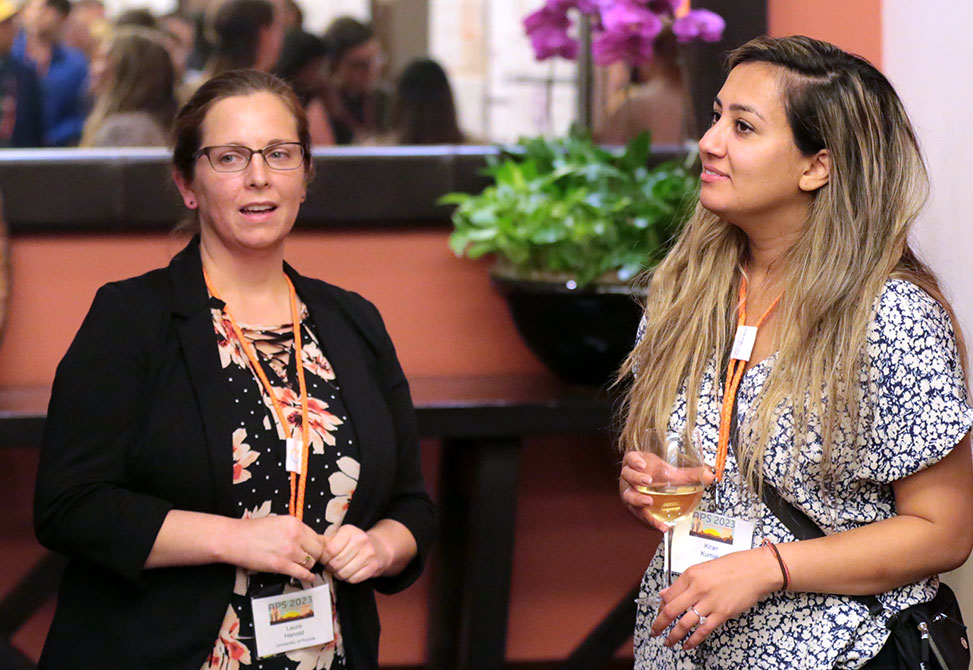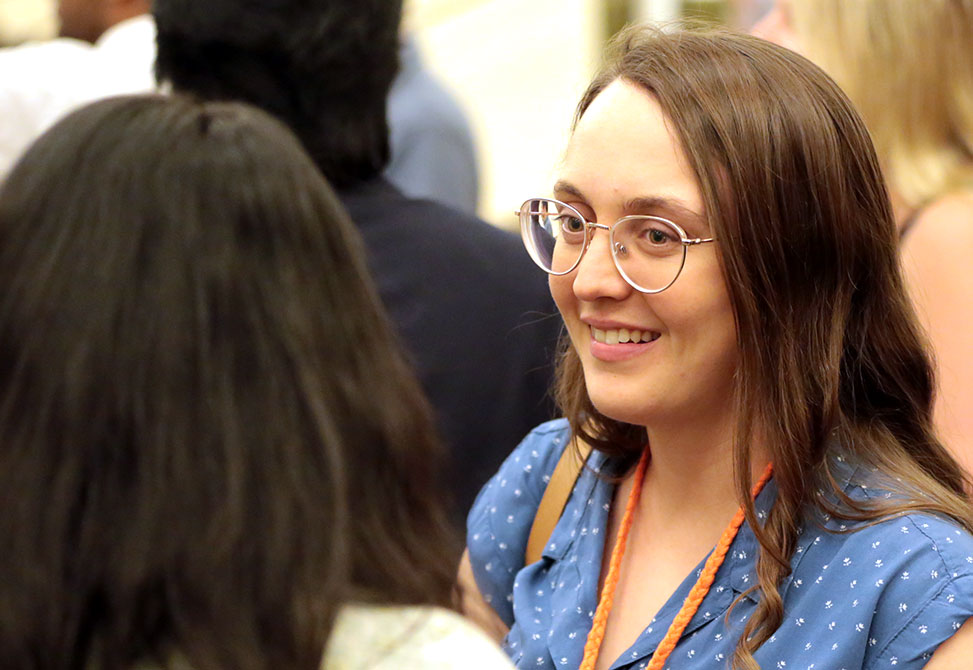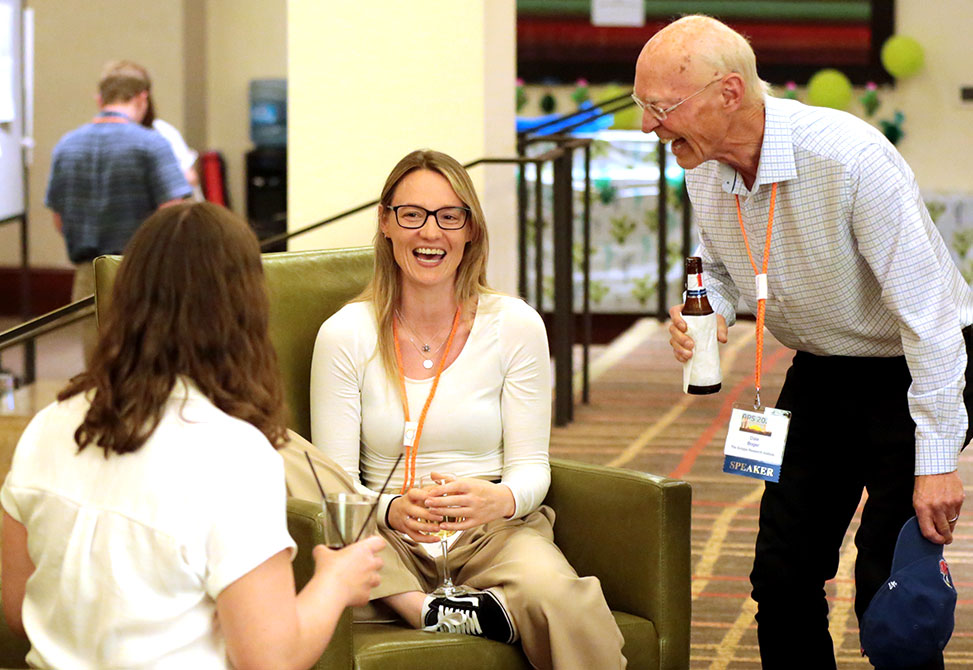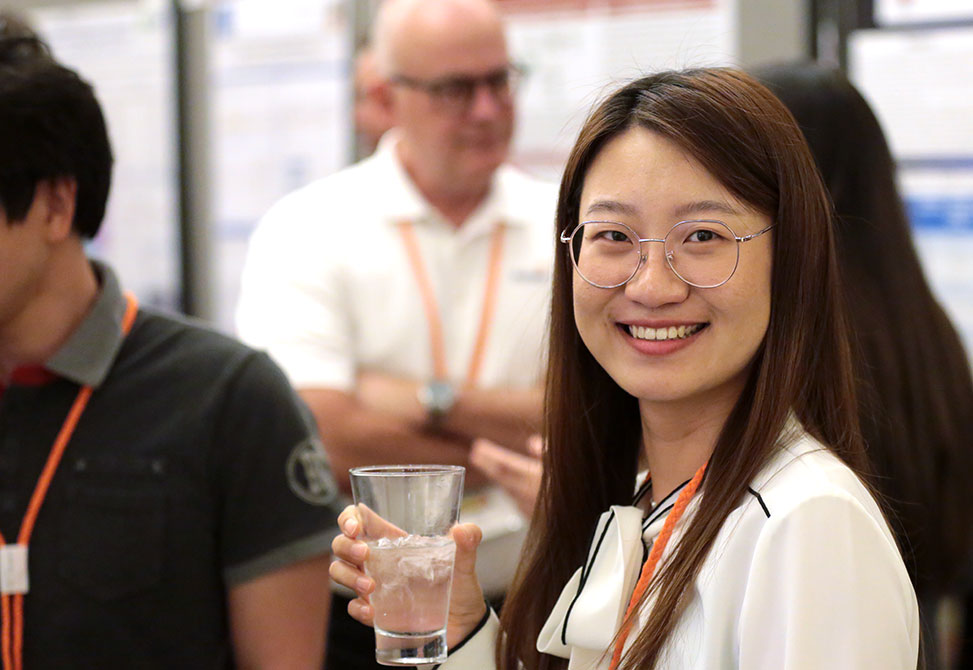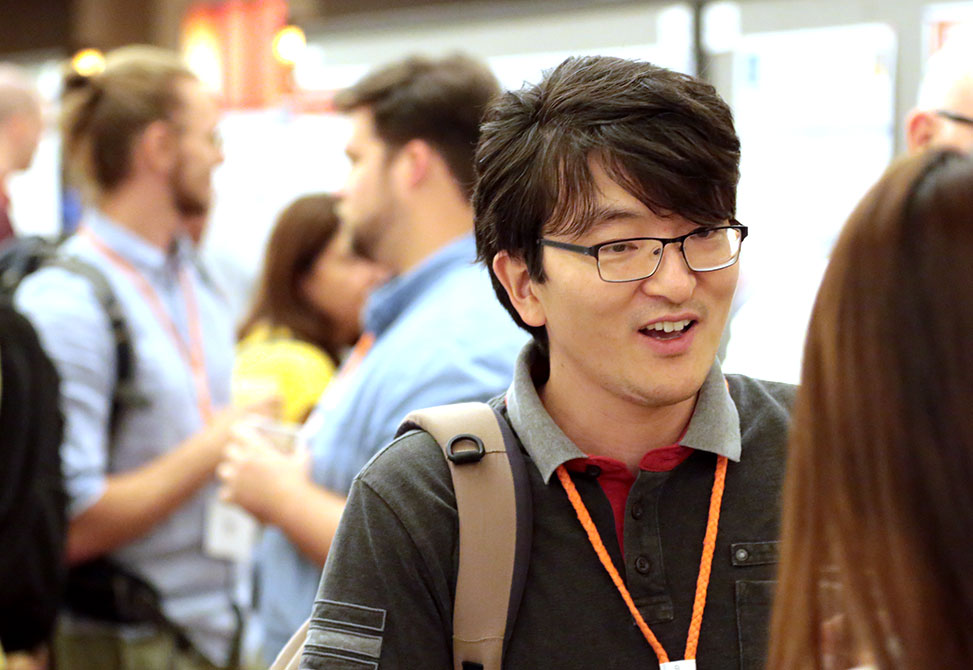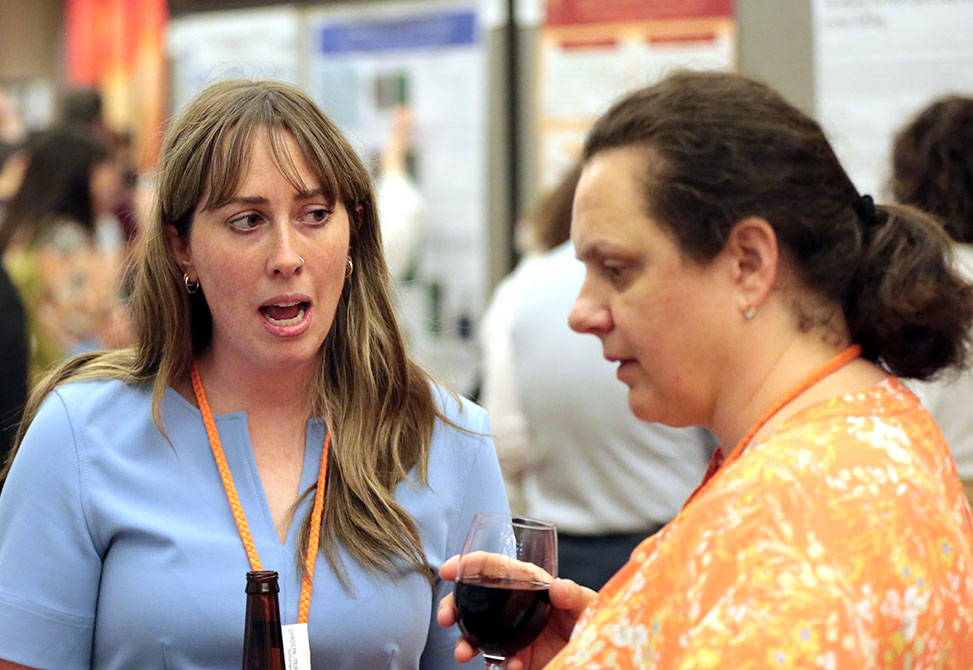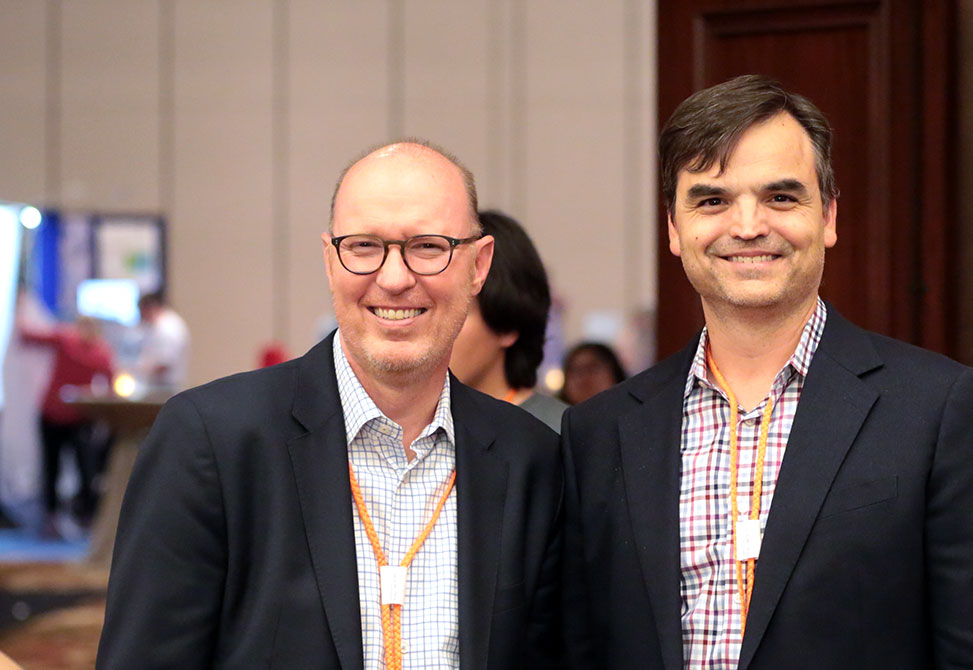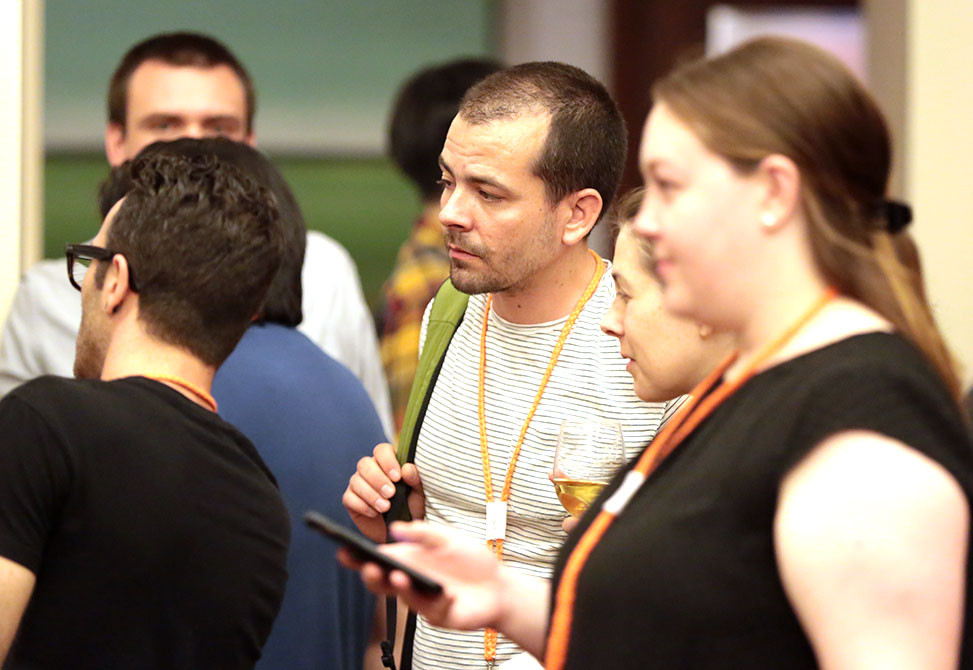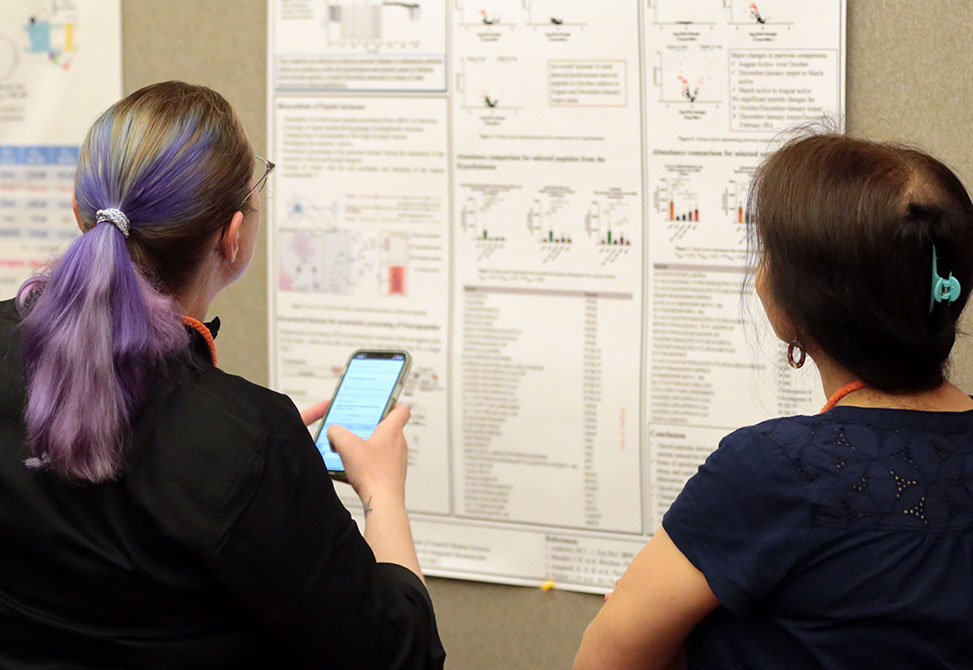The 28th American Peptide Symposium
At the Peptide Frontier
We are excited to welcome you to the 28th American Peptide Symposium in sensational Scottsdale. The theme, “At the Peptide Frontier,” conveys that this Symposium will feature emerging peptide research at the forefront of chemical, structural, materials, biological, pharmaceutical and medical science. We are deligted that you are here – enjoy your symposium!
Welcome also to The Westin Kierland Resort & Spa! Located near versatile dining and shopping at Kierland Commons, we trust that our venue will offer a stimulating experience in the Sonoran Desert. Perhaps you brought your family to enjoy the onsite Adventure Waterpark or the nearby OdySea Aquarium. For golf enthusiasts, challenge yourself at The Westin Kierland Golf Club, an award-winning course. Experience something new and refreshing at this beautiful resort, while diving into the latest developments in Peptide Science.
Recent Presentations
L76 | Wells
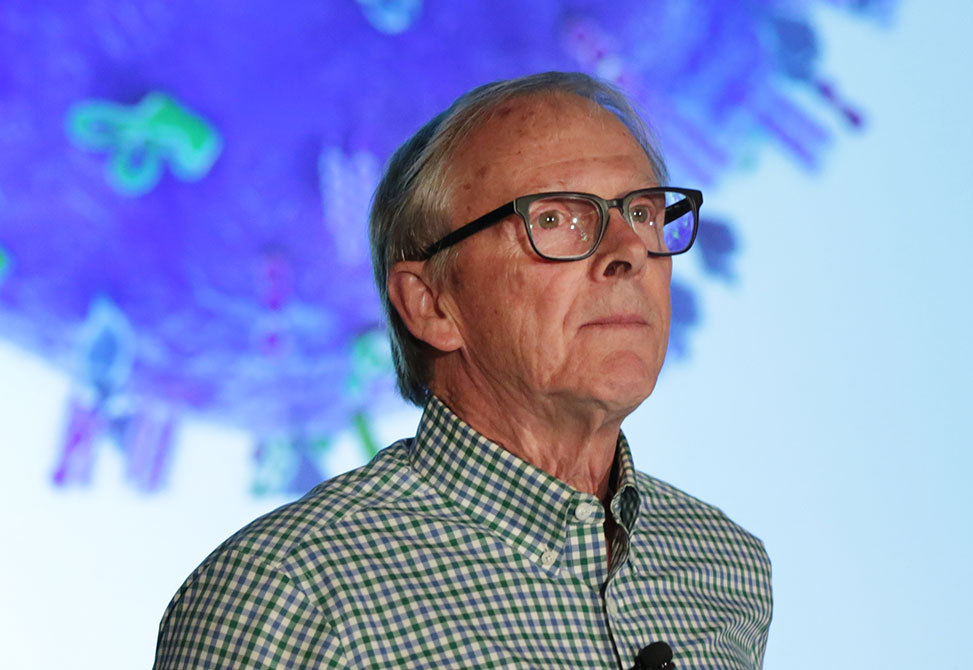
The cell surface proteome, the surfaceome, is a major hub for cellular communication and a primary source of drug targets, especially for biologics. Identifying how...
Read More…L75 | Tucker
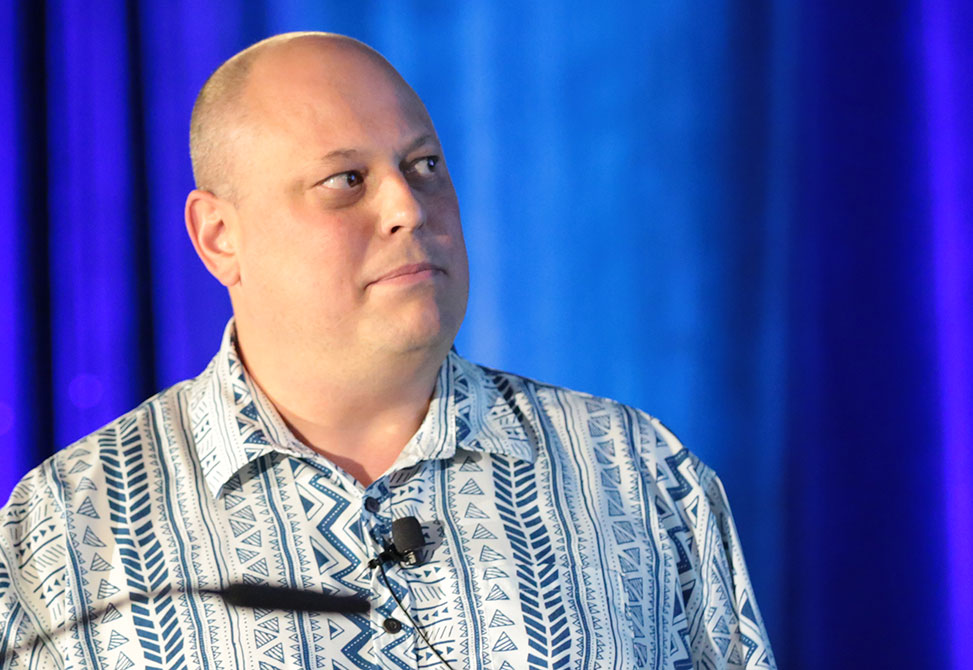
2D IR vibrational probe pairs provide structural maps for uncovering dynamics associated with active biomolecules, providing insights into the molecular movements leading...
Read More…L74 | Burslem
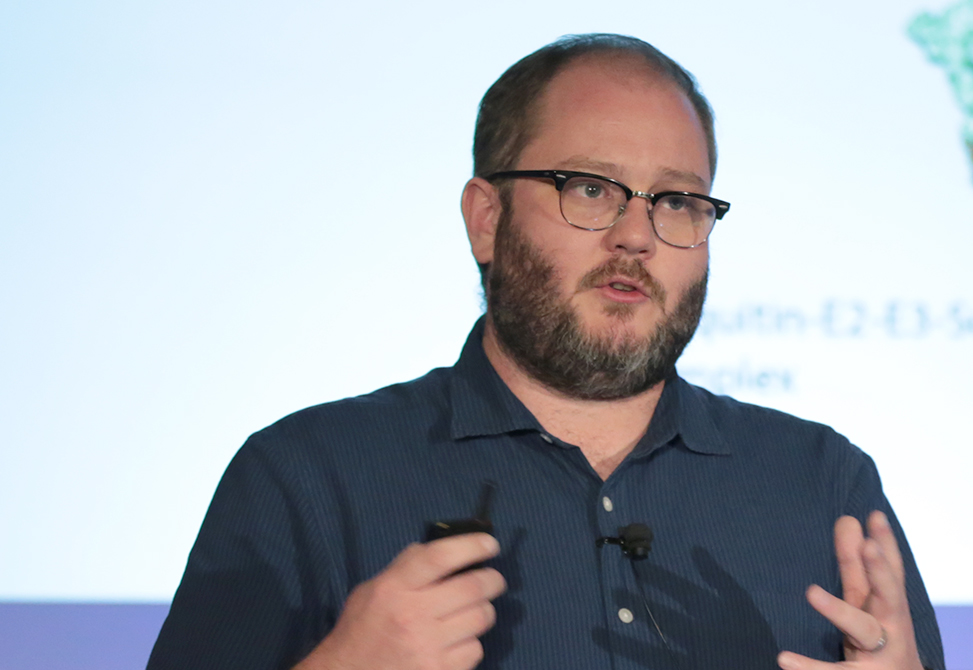
The proteins of class I major histocompatibility complex, MHC-I, display epitopic peptides on the cell surface, providing the foundation for immune surveillance of intracellular threats...
Read More…L73 | Rodriguez
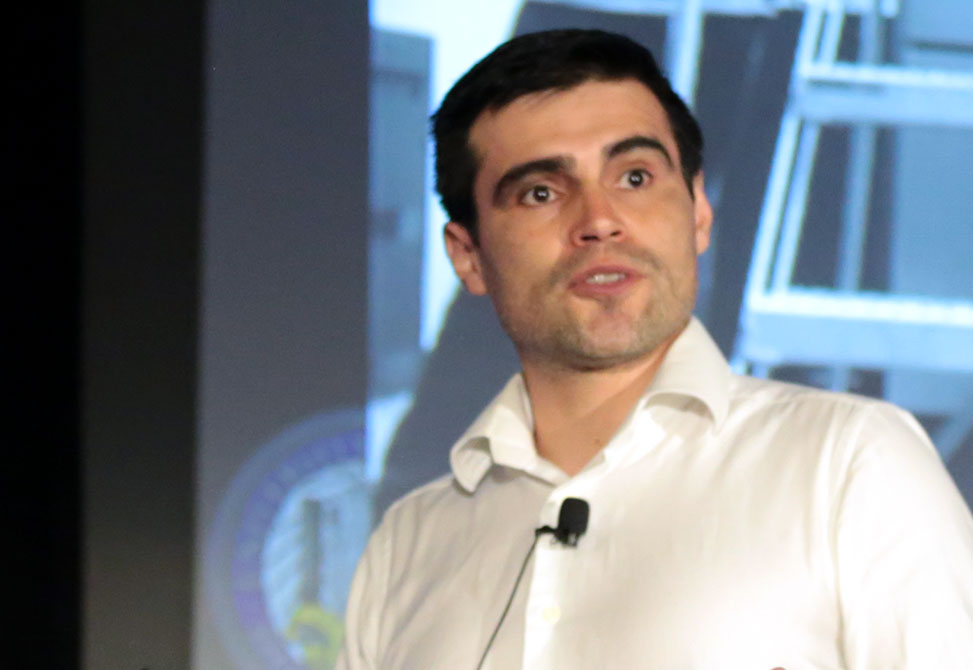
Electron diffraction has historically played an important role in the advancement of crystallographic approaches for the determination of complex small molecule structures...
Read More…L72 | Dang
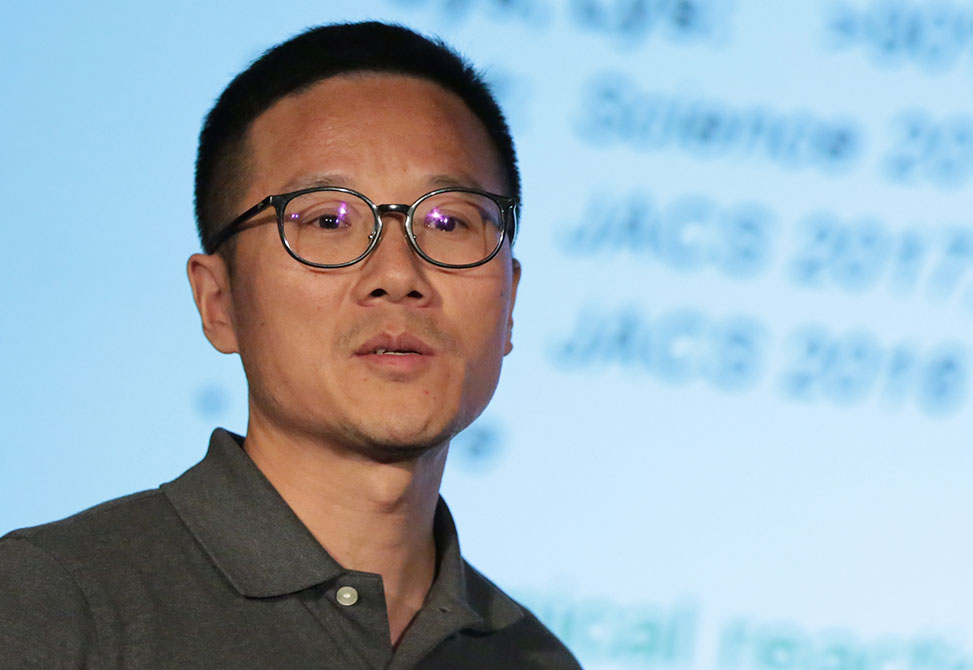
Direct site-specific methods of chemical protein functionalization are highly desirable. However, such methods are particularly challenging to develop due to the tremendous difficulty of...
Read More…L71 | Jongkees
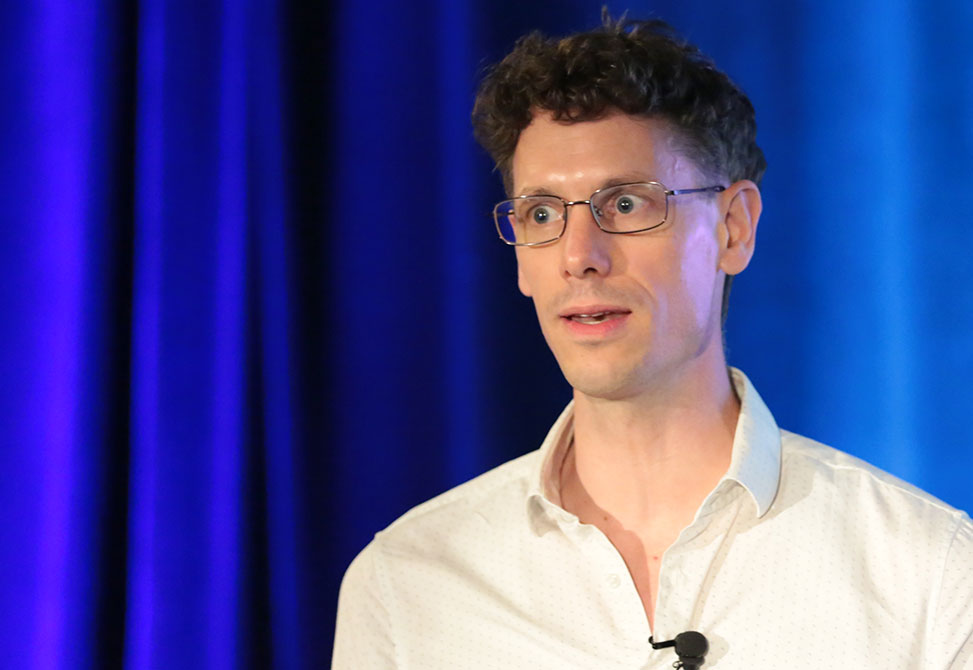
The current Covid-19 pandemic dramatically illustrates the need to find new anti-viral agents, and underscores the importance of finding these agents before they are needed...
Read More…L70 | Kay
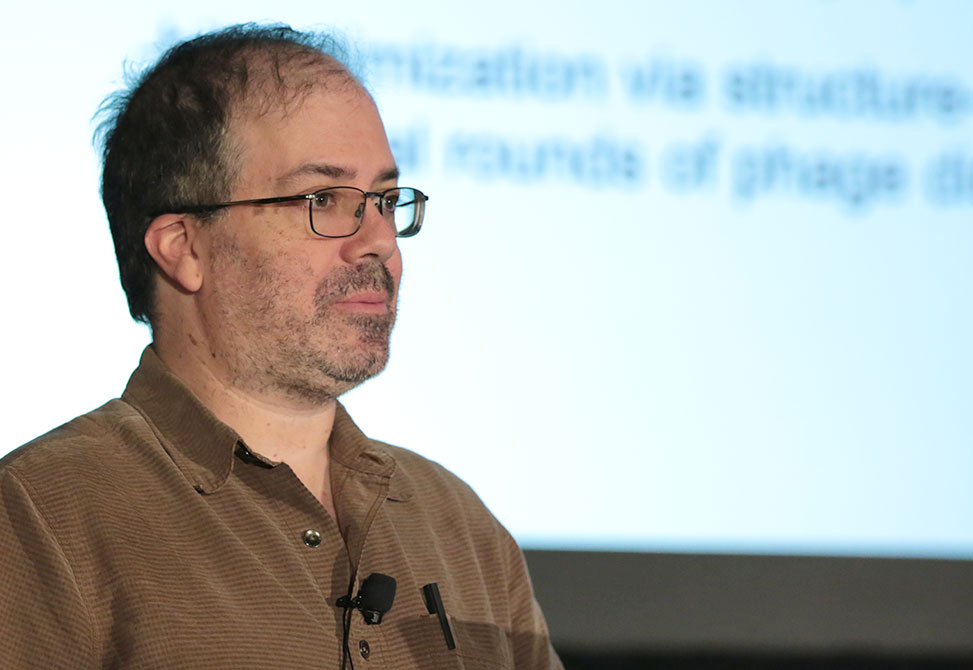
D-peptides are promising therapeutic agents because of their resistance to proteases and low immunogenicity. However, D-peptide discovery using high-throughput screening methods...
Read More…L68 | Bhardwaj
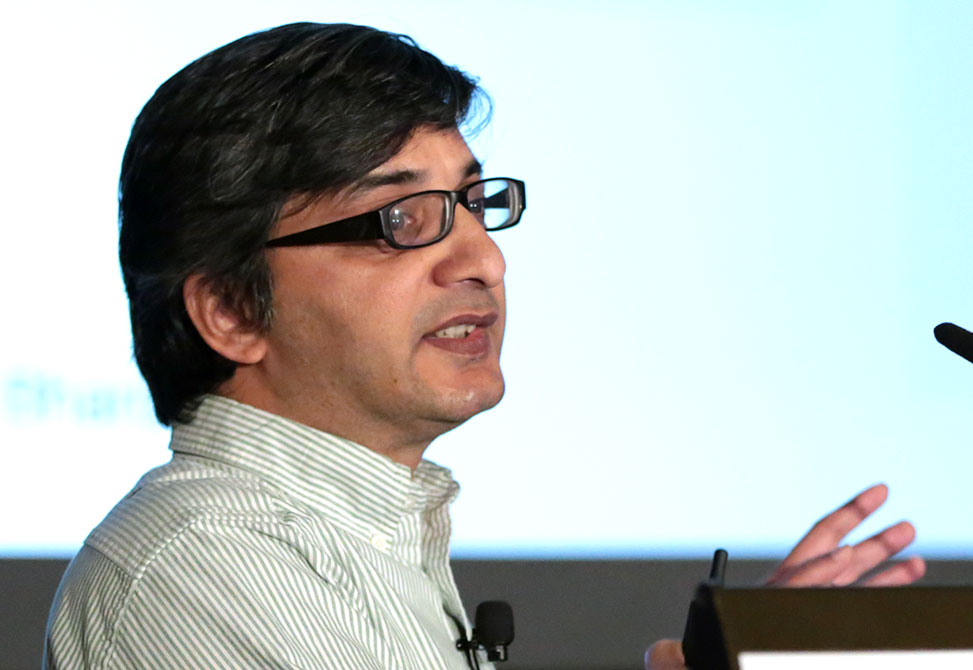
Machine learning, ML, methods have demonstrated tremendous success in the structure prediction and design of larger proteins.1, 2 However, these established methods...
Read More…Awards
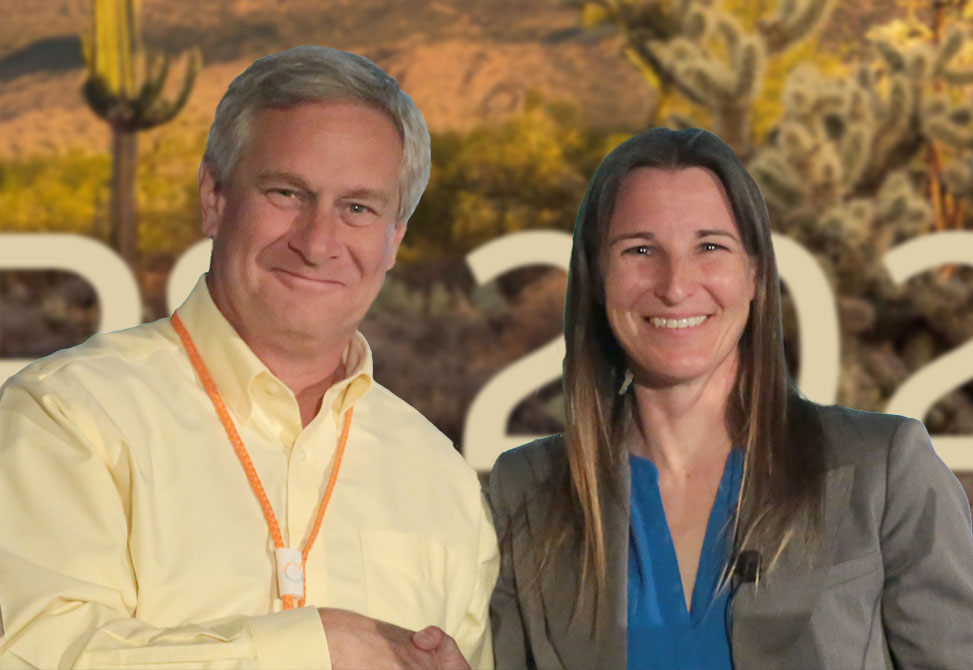
Early Career Award
Lara Malins from Research School of Chemistry at the Australian National University receives his Early Career Lectureship Award for 2023 from outgoing APS President Joel Schneider.
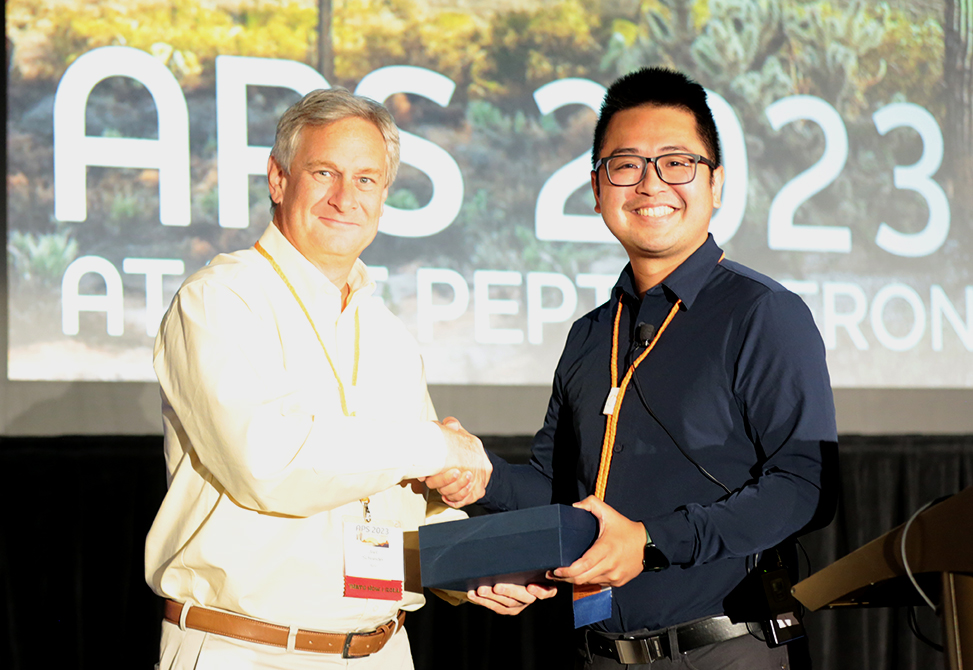
Early Career Award
Danny Chou from Stanford University receives his Early Career Lectureship Award for 2022 from APS President Joel Schneider.
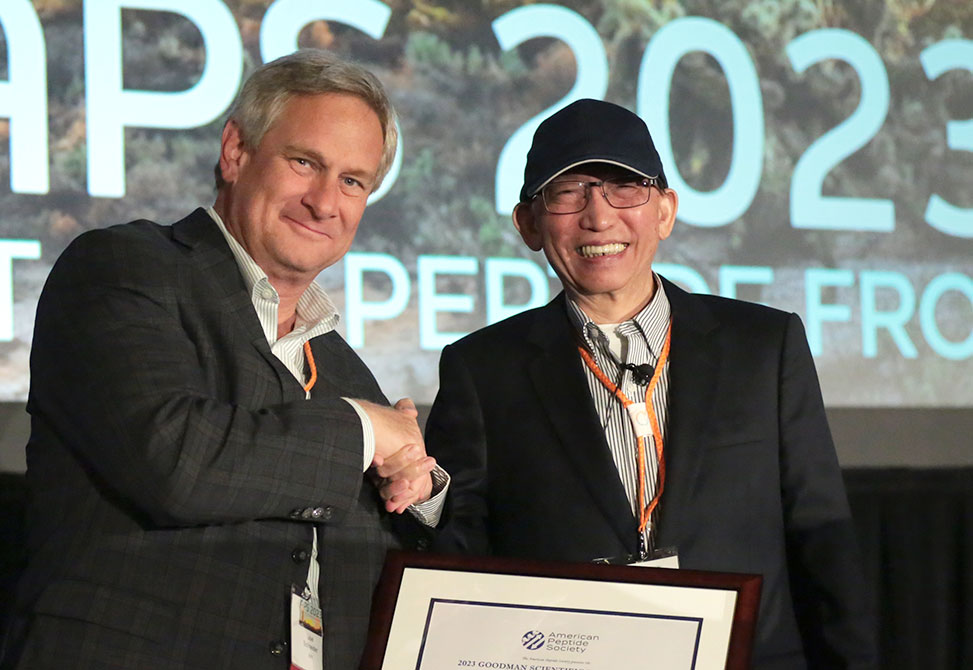
Goodman Lecture
Professor James P. Tam from Nanyang Technological University, Singapore, receives the 2023 Goodman Lecture Award from APS President Joel Schneider.
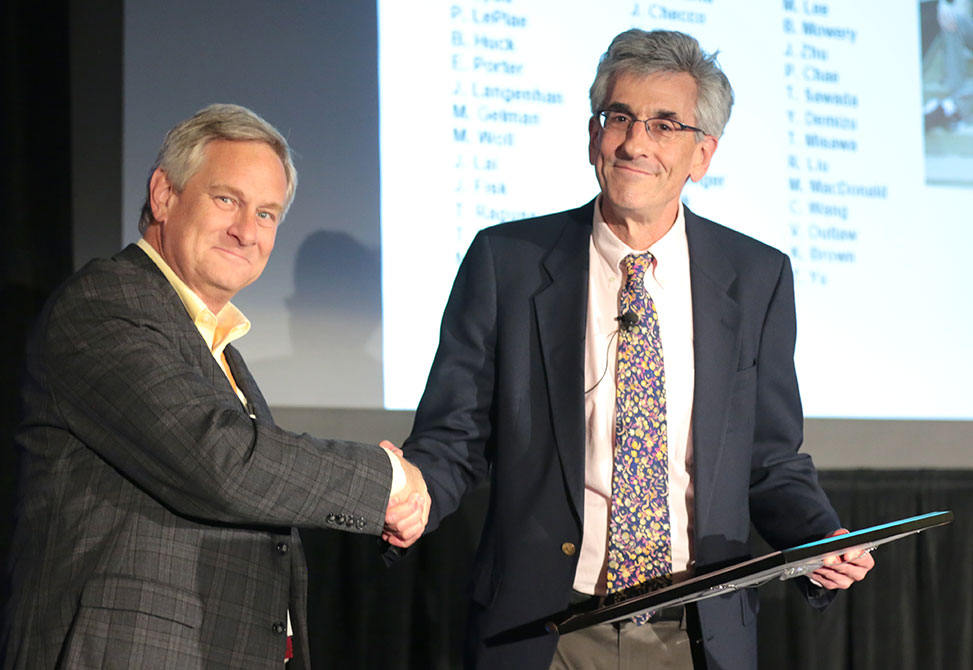
Merrifield Award
Professor Sam Gellman receives the 2023 Merrifield Award from Dr. Joel Schneider, President of the APS
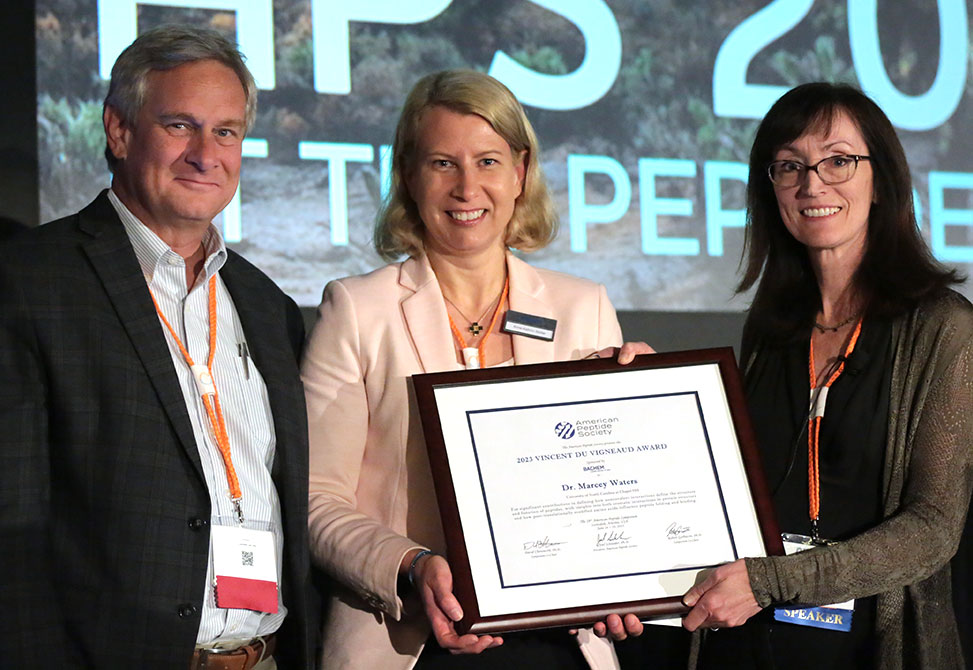
du Vigneaud
Marcey Waters receives her du Vignaud Award from Anne-Kathrin Stoller. The award is sponsored by BACHEM. Pictured from left to right: Joel Schneider, Anne-Kathrin Stoller, Chief Operating Officer, Bachem Americas, Marcy Waters, University of North Carolina at Chapel Hill
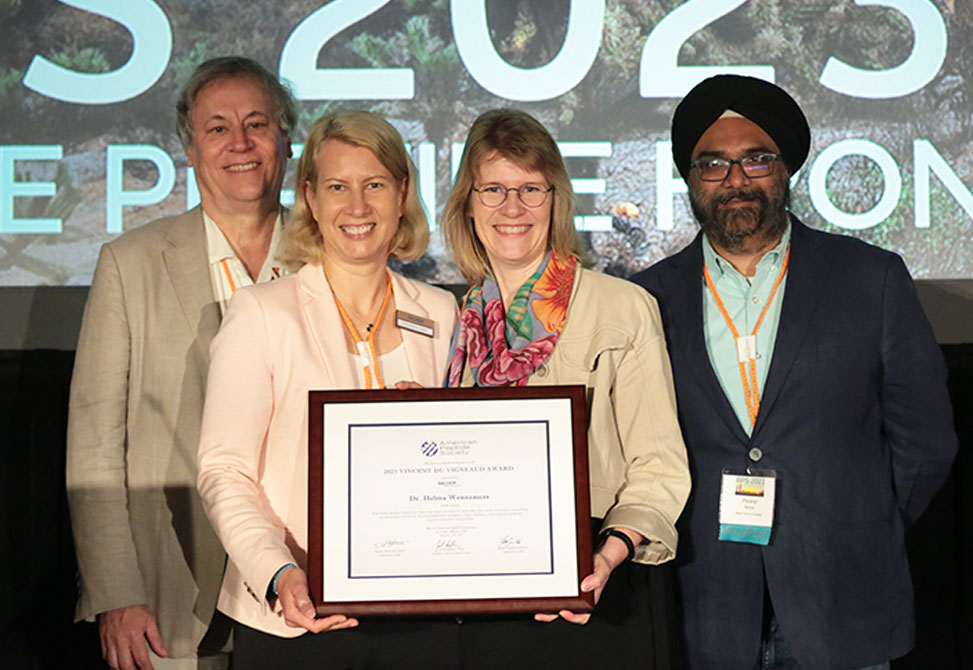
du Vigneaud
Helma Wennemers receives the du Vignaud Award from Anne-Kathrin Stoller. The award is sponsored by BACHEM. Pictured from left to right: Ron Raines, MIT, Anne-Kathrin Stoller, Chief Operating Officer, Bachem Americas, Helma Wennemers, ETH, Zurich, Bobby Arora, Incoming President, APS.
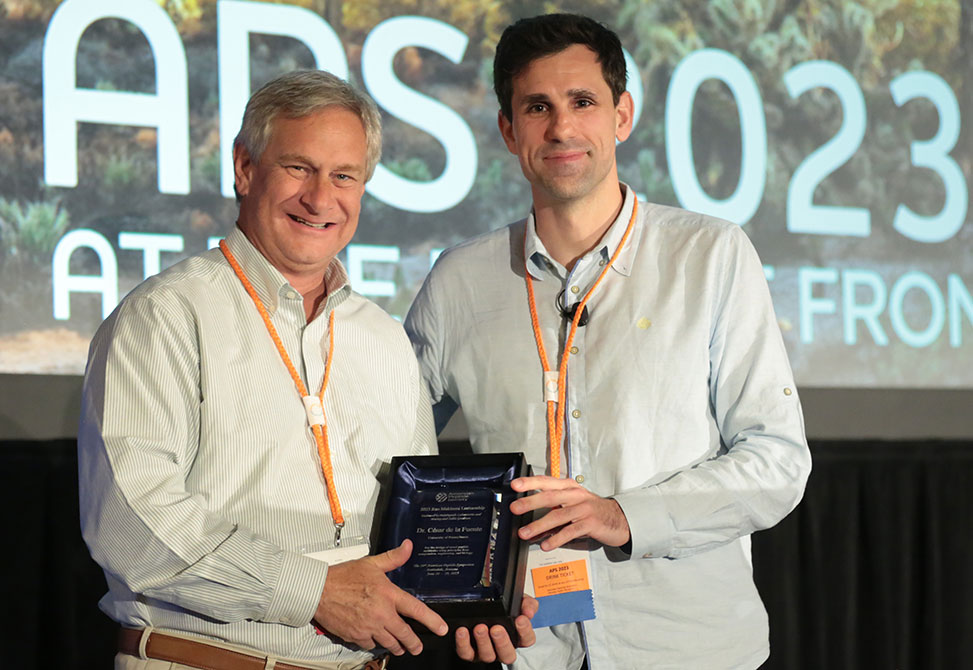
Rao Makineni Lecture
Professor César de la Fuente with the University of Pennsylvania receives his 2023 Makineni Award from APS President Joel Schneider
Gold Sponsors
Poster Session 2
Symposium Co Chairs
David Chenoweth
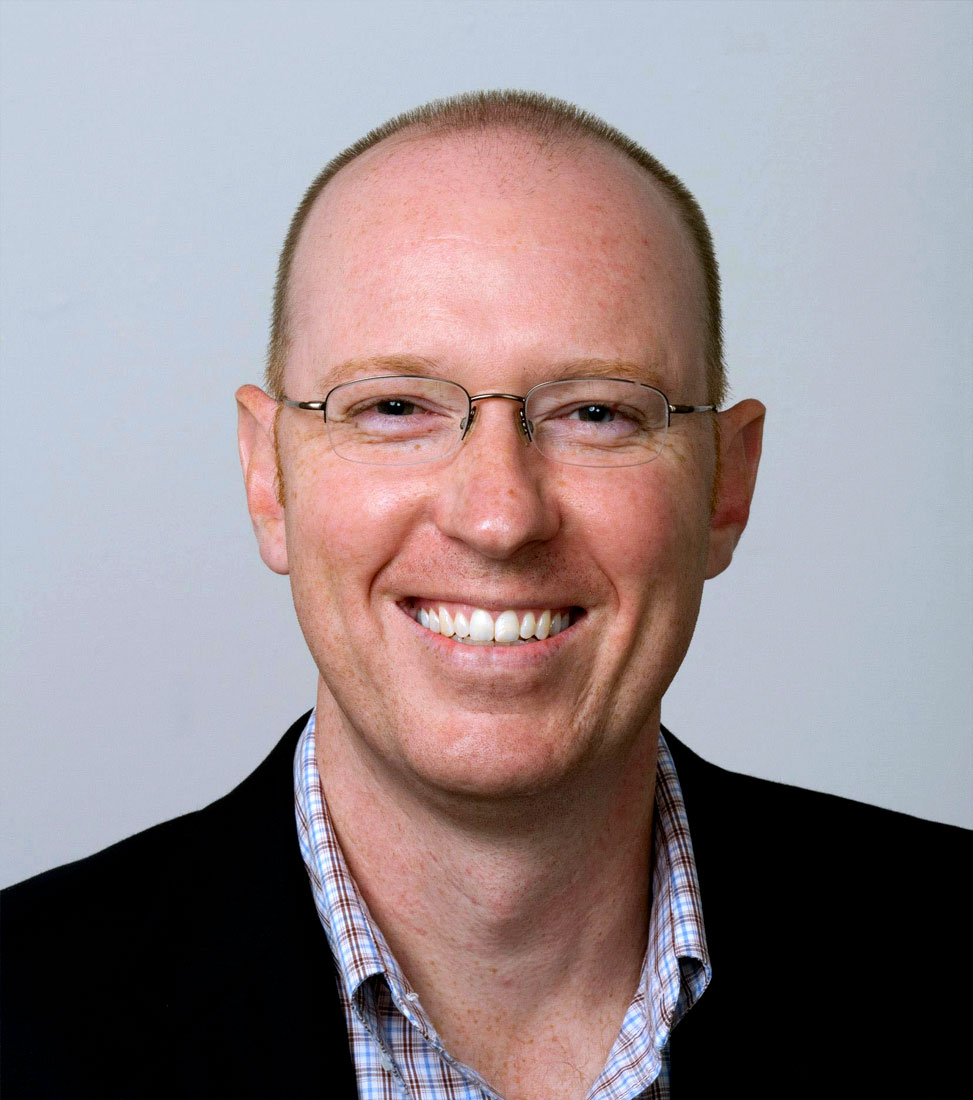 David was born in Indiana and received his B.S. degree from Indiana University-Purdue University Indianapolis, IUPUI, in 1999. After graduation, he completed an internship at Dow AgroSciences prior to joining the Discovery Chemistry Research department at Eli Lilly in 2000. While working with Dr. Thomas Britton at Eli Lilly, David developed a passion for organic chemistry and headed to Caltech in 2003 to pursue a Ph.D. degree in Professor Peter B. Dervan’s group. David received the Caltech Chemistry Department’s Herbert Newby McCoy Ph.D. thesis award for outstanding contribution to the science of chemistry. After graduation, he was an NIH Postdoctoral Fellow at MIT working with Professor Timothy Swager on the synthesis of new materials for chemical sensing. David joined the Department of Chemistry at the University of Pennsylvania in 2011, in the Biochemistry and Molecular Biophysics Graduate Group in the Perelman School of Medicine in 2013, and in the Bioengineering Graduate Group in the School of Engineering and Applied Science in 2013. He was promoted to Associate Professor with tenure in 2017 and Full Professor in 2021.
David was born in Indiana and received his B.S. degree from Indiana University-Purdue University Indianapolis, IUPUI, in 1999. After graduation, he completed an internship at Dow AgroSciences prior to joining the Discovery Chemistry Research department at Eli Lilly in 2000. While working with Dr. Thomas Britton at Eli Lilly, David developed a passion for organic chemistry and headed to Caltech in 2003 to pursue a Ph.D. degree in Professor Peter B. Dervan’s group. David received the Caltech Chemistry Department’s Herbert Newby McCoy Ph.D. thesis award for outstanding contribution to the science of chemistry. After graduation, he was an NIH Postdoctoral Fellow at MIT working with Professor Timothy Swager on the synthesis of new materials for chemical sensing. David joined the Department of Chemistry at the University of Pennsylvania in 2011, in the Biochemistry and Molecular Biophysics Graduate Group in the Perelman School of Medicine in 2013, and in the Bioengineering Graduate Group in the School of Engineering and Applied Science in 2013. He was promoted to Associate Professor with tenure in 2017 and Full Professor in 2021.
Robert Garbaccio
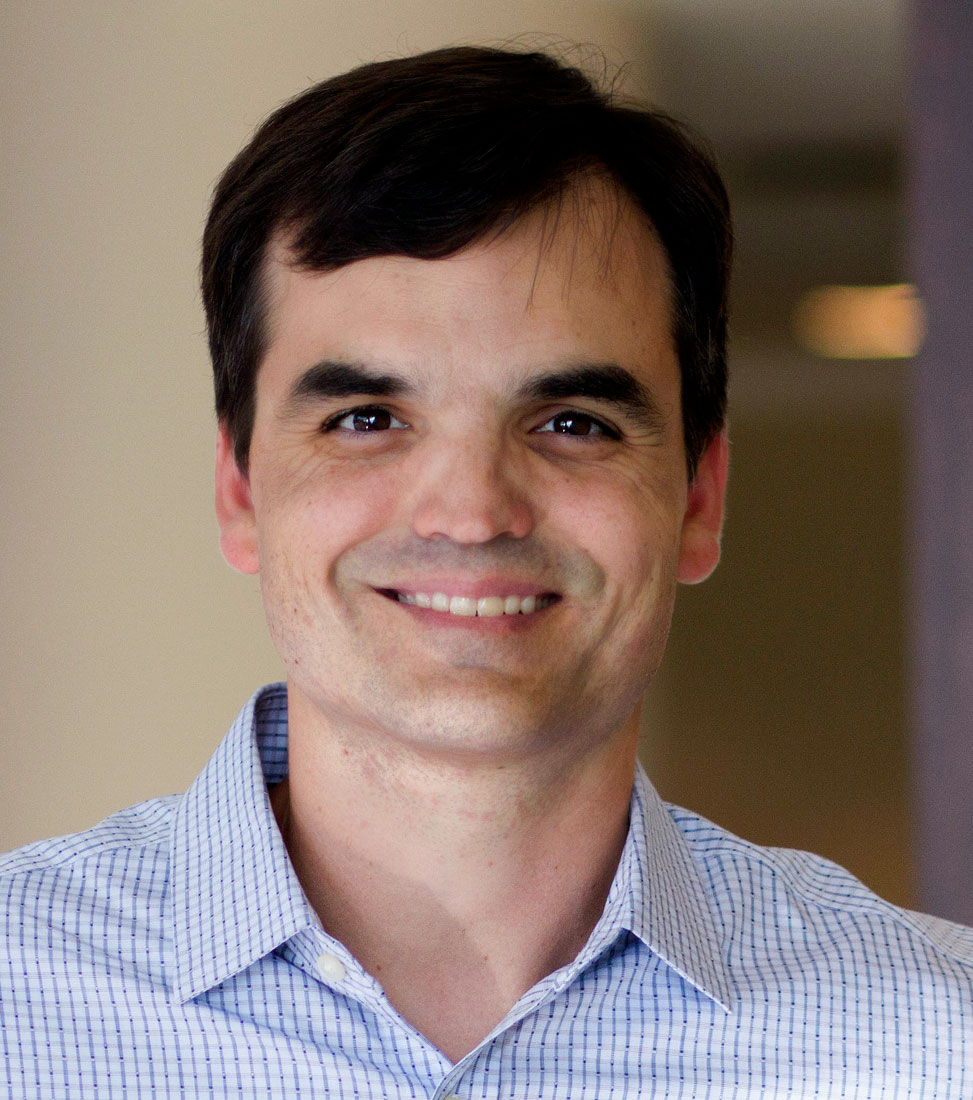 Rob Garbaccio received his B.A. in chemistry from Boston University, his Ph.D. from The Scripps Research Institute and was a National Institutes of Health, NIH, postdoctoral fellow at Memorial Sloan Kettering Cancer Center. Rob joined Merck Discovery Chemistry, West Point, in 2001. His initial focus was within small molecule discovery for targets in oncology and neuroscience. Subsequently, Rob led a group that developed polymer- and antibody-mediated delivery of siRNA. Rob also served as chemistry lead for the Merck-Ambrx collaboration for the development of antibody drug conjugates beyond oncology as well as the Merck-Peptidream collaboration for the application of macrocyclic peptides to challenging targets. In 2016, Rob built and led the Discovery Chemistry Modalities group in the position of Executive Director. From 2018-2020, Rob led the Chemistry Capabilities for Accelerating Therapeutics, CCAT, which aims to accelerate the Discovery Chemistry pipeline through the integration of innovative capabilities and therapeutic modalities. In late October 2020, Rob was named Head of Discovery Chemistry.
Rob Garbaccio received his B.A. in chemistry from Boston University, his Ph.D. from The Scripps Research Institute and was a National Institutes of Health, NIH, postdoctoral fellow at Memorial Sloan Kettering Cancer Center. Rob joined Merck Discovery Chemistry, West Point, in 2001. His initial focus was within small molecule discovery for targets in oncology and neuroscience. Subsequently, Rob led a group that developed polymer- and antibody-mediated delivery of siRNA. Rob also served as chemistry lead for the Merck-Ambrx collaboration for the development of antibody drug conjugates beyond oncology as well as the Merck-Peptidream collaboration for the application of macrocyclic peptides to challenging targets. In 2016, Rob built and led the Discovery Chemistry Modalities group in the position of Executive Director. From 2018-2020, Rob led the Chemistry Capabilities for Accelerating Therapeutics, CCAT, which aims to accelerate the Discovery Chemistry pipeline through the integration of innovative capabilities and therapeutic modalities. In late October 2020, Rob was named Head of Discovery Chemistry.
